
EXPLORING THE ISSUES THAT SHAPE TODAY’S BUSINESS WORLD SPRING 2019
+ Robots Take on the C-Suite Learn the Art of Influence Make a Social Impact With Your Career More Columnists, More Insights: MARK GILBERT TINA GOLSCH MARTY GREEN TIM JIPPING ART KUESEL JON LOKHORST ELIZABETH PITTELKOW KITTNER TODD SHAPIRO KEITH STAATS
Gender Parity: A Long Way to Go
CPACharge is an easy-to-use practice management tool trusted by more than 60,000 successful professionals, developed exclusively for CPAs to help manage payments and grow revenue in their practice.

DESIGNED FOR CPAs

0%, $2/TRANSACTION eCHECK PROCESSING
RECURRING BILLING AND SCHEDULED PAYMENTS
SECURE, CUSTOMIZABLE PAYMENT PAGES
PCI COMPLIANCE INCLUDED ($150 VALUE)

SIMPLE REPORTING AND RECONCILIATION
UNLIMITED SUPPORT BY PHONE, LIVE CHAT, AND EMAIL
866-526-7320
SIMPLE ONLINE PAYMENTS
CPA FIRMS
FOR
cpacharge.com/icpas
Special offer for ICPAS members CPACharge s a reg stered agent o Wel s Fargo Bank N A Conco d CA and Ci izens Bank N A Prov
Exp Card Number CVV **** **** **** 9998 001 Invoice Number 1005 NOV 2021 Payment Detail Submit to Smith Johnson, CPA Pay CPA P O W E R E D B Y
is proud to be a vetted and approved Member Benefit of the Illinois CPA Society
$1,000
CPACharge


2 INSIGHT | www icpas org/insight SPRING 2019 www icpas org/insight THE BUSINESS OF MAKING A SOCIAL IMPACT 2 42 7 2 83 1 HOW ROBOTS WILL TRANSFORM THE C - SUITE GENDER PARITY: A LONG WAY TO GO spotlights 4 Today ’s CPA The Sky Is Our Limit! By Todd Shapiro 6 Chair ’s View It ’ s Time for Action By Geoffrey Harlow, CPA , MST, MBA 8 Capitol Report Pritzker Speeds Through the Honeymoon Period By Marty Green, Esq 50 Gen Next Grappling With Ganja By Taylor Schuck 52 IN Play Q&A With Chicago Sun-Times Controller Monica N Harrison By Eric Scott trends 14 Practice Management Go West, Old Man: A Lesson in Practice Management By Brad Sargent, CPA/CFF, CFE, CFS, CCA , FABFA 16 Professional Education Leveling Up Your Accounting and Finance Credentials By Bridget McCrea 18 Leadership & People Management Accounting for the Art of Influence By Selena Chavis insights 32 Firm Journey Calling All (Emerging) Leaders: What Got Us Here Won’t Get Us There By Tim Jipping, CPA , CGMA 34 Corporate Calling Do the Numbers Speak for Themselves? By Tina Golsch 36 Leadership Matters What Does Leadership Mean to You? By Jon Lokhorst, CPA , ACC 38 Practice Perspectives How to Spruce Up Your CPA Firm’s Organic Growth By Art Kuesel 40 Financially Speaking 7 Ways to Spring Clean Your Personal Finances By Mark J Gilbert, CPA/PFS, MBA 42 Ethics Engaged How to Elevate Ethics in Accounting and Finance By Elizabeth Pittelkow Kittner, CPA , CGMA , CITP, DTM 44 Tax Decoded Illinois Eyes Corporate Income Again By Keith Staats, JD 2 02 3
www.icpas.org/careers
As a benefit of your Illinois CPA Society membership, both job hunters and employers can take advantage of the Career Center:
your resume with employers (even confidentially)

new job alerts sent directly to your email
ILLINOIS CPA SOCIET Y 550 W Jackson Boulevard, Suite 900, Chicago, IL 60661
www.icpas.org
Publisher/President & CEO
Todd Shapiro
Editor Derrick Lilly
Creative Director
Gene Levitan
Photography Jay Rubinic + Derrick Lilly
Circulation
John McQuillan
ICPAS OFFICERS
Chairperson
Geoffrey J Harlow, CPA | Wipfli LLP
Vice Chairperson
Dorri C McWhorter, CPA, CGMA, CITP | YWCA Metropolitan Chicago
Secretar y
Thomas B Murtagh, CPA, JD | BKD LLP
Treasurer
Elizabeth Pittelkow Kittner, CPA, CGMA, CITP, DTM | Litera Microsystems
Immediate Past Chairperson
Rosaria Cammarata, CPA, CGMA | Mattersight Corporation
ICPAS BOARD OF DIRECTORS
John C Bird, CPA | RSM US LLP
Brian J Blaha, CPA | Wipfli LLP
Jennifer L Cavanaugh, CPA | Grant Thornton LLP
Jon S Davis, CPA (AZ Ret ) | University of Illinois
Stephen R Ferrara, CPA | BDO USA LLP
Mary K Fuller, CPA | Shepard Schwartz & Harris LLP
Jennifer L Goettler, CPA, CFE | Heinold Banwart Ltd
Jonathan W Hauser, CPA | KPMG LLP
Scott E Hurwitz, CPA | Deloitte LLP
Joshua D Lance, CPA, CGMA | Lance CPA Group
Deborah K Rood, CPA, MST | CNA Insurance
Seun Salami, CPA | Teachers Insurance and Annuity Association of America
Stella Marie Santos, CPA | Adelfia LLC
Andrea K Urban, CPA | ThoughtWorks Inc
BACK ISSUES + REPRINTS
Back issues may be available Articles may be reproduced with permission
Please send requests to lillyd@icpas org
ADVERTISING
Want to reach 25,000 accounting and finance professionals? Advertising in INSIGHT and with the Illinois CPA Society gives you access to Illinois’ largest financial community Contact Mike Walker at mike@rwwcompany com
INSIGHT is the magazine of the Illinois CPA Society Statements or articles of opinion appearing in INSIGHT are not necessarily the views of the Illinois CPA Society The materials and information contained within INSIGHT are offered as information only and not as practice, financial, accounting, legal or other professional advice Readers are strongly encouraged to consult with an appropriate professional advisor before acting on the information contained in this publication It is INSIGHT’s policy not to knowingly accept advertising that discriminates on the basis of race, religion, sex, age or origin The Illinois CPA Society reserves the right to reject paid advertising that does not meet INSIGHT’s qualifications or that may detract from its professional and ethical standards The Illinois CPA Society does not necessarily endorse the non-Society resources, services or products that may appear or be referenced within INSIGHT, and makes no representation or warranties about the products or services they may provide or their accuracy or claims The Illinois CPA Society does not guarantee delivery dates for INSIGHT The Society disclaims all warranties, express or implied, and assumes no responsibility whatsoever for damages incurred as a result of delays in delivering INSIGHT INSIGHT (ISSN-1053-8542) is published four times a year, in Spring, Summer, Fall, and Winter, by the Illinois CPA Society, 550 W Jackson, Suite 900, Chicago, IL 60661, USA, 312 993 0407 Copyright © 2019 No part of the contents may be reproduced by any means without the written consent of INSIGHT Send requests to the address above Periodicals postage paid at Chicago, IL and at additional mailing offices
POSTMASTER: Send address changes to: INSIGHT, Illinois CPA Society, 550 W Jackson, Suite 900, Chicago, IL 60661, USA
careercenter
RECEIVE
STRENGTHEN your
career
POST jobs online quickly and simply* CREATE alerts for resumes and manage applications *fees apply
SHARE
resume with
resources and coaches
Find the tools you need to succeed!
today’sCPA
The Sky Is Our Limit!
Ikeep repeating this quote I heard at a conference last year: “We will never see the pace of change slower than it is right now ” While scary, I believe there’s a lot of truth to that statement In my last column, I highlighted three trends that the AICPA predicts will significantly impact our profession moving forward: technology, changes in hiring practices, and new client demands In many ways, these trends are inter-related I’d like to talk further about the third trend: new client demands
In 2018, the World Economic Forum’s “The Future of Jobs Report” identified the top 10 roles it expects to decline by 2022 Accounting, bookkeeping, and payroll clerks ranked second on the list and accountants and auditors came in at number seven Why is that? I think it’s driven by the inter-related trend of technology automating these types of functions and tasks at an ever-increasing clip

To help ensure the sustainability of CPAs and the CPA profession, we need to look beyond traditional tax and audit services, what I refer to as compliance services, or deliver them in a very different way The good news is companies are demanding new skills and services from CPAs I see more companies and clients looking for CAS (client accounting services), virtual CPA firms, cybersecurity services, wealth management services, and greater strategic advice and let’s not overlook the growing demand for data analysis and predictive analytics
Now, let’s look at some of the traits that define great CPAs: the ability to dissect and understand a problem, analytical and communication skills, mastery of information, and being able to analyze data to drive decision making There’s nobody better than CPAs to meet the evolving service demands of clients and companies Further, with cloud technology and software
advancements, CPAs have more tools than ever to provide services to clients that previously could not have been done or performed in an efficient, cost-effective manner
So, what will hold us back? In too many cases, the general public still hears CPA or CPA firm and thinks of audit and tax A senior partner I know in a relatively large firm recently met with a client about providing expanded services The client’s initial reaction was along the lines of “ we don’t need anything else from you, because we ’ re happy with our audit and tax services ” Yet, when the partner dug further, the client needed help making sense of their ERP system’s data the CPA firm had the capability to help with that problem
Often, we ’ re our own worst enemy, defining ourselves (CPAs) in the limiting terms of audit or tax While we talk of CPAs as trusted business advisors with broad business skills, we often recruit others (non-CPAs) into our firms for consulting roles because we pigeon-hole CPAs, narrowly, into audit and tax Why?
In the end, CPAs are only limited by themselves in which new, exciting, in-demand services they provide clients and companies Yes, public perceptions also need to change but that will come as we continually celebrate and promote the skills and services that have made us trusted business advisors and, more importantly, valued business advisors We need to continually redefine ourselves beyond the world of audit and tax To not do so risks the relevance and sustainability of our profession

We need to redefine the role of the CPA , or otherwise risk the relevance of our profession.
INSIGHTS FROM TODD SHAPIRO, ICPAS PRESIDENT & CEO @Todd ICPAS
4 INSIGHT | www icpas org/insight
Board of Directors
CHAIRPERSON
Geof frey J. Harlow
Wipfli LLP
VICE CHAIRPERSON
Dorri C McWhor ter
YWCA Metropolitan Chicago
SECRETARY
Thomas B Mur t agh
BKD LLP
TREASURER
Elizabet h Pittelkow Kittner
Litera Microsystems
IMMEDIATE PAST CHAIRPERSON
Rosaria Cammarata
Mattersight Corporation
DIRECTORS
John C Bird
RSM US LLP
Brian J. Blaha
Wipfli LLP
Jennifer L. Cavanaugh
Grant Thornton LLP
Jon S Davis
University of Illinois
Stephen R Ferrara
BDO USA LLP

Mar y K. Fuller
Shepard Schwar tz & Harris LLP
Jennifer L. Goettler
Heinold Banwar t Ltd
Jonat han W Hauser
KPMG LLP
Scott E Hur witz
Deloitte LLP
Joshua D. Lance
Lance CPA Group
Deborah K. Rood
CNA Insurance
Seun Salami
Teachers Insurance and Annuity
Association of America
Stella Marie Santos
Adelfia LLC
Andrea K Urban
ThoughtWorks Inc
Chapter Presidents
CENTRAL
Ashley M Bar ton
Caterpillar Inc
CHICAGO METRO
Sherman C. Wright
Sherman Wright
CHICAGO SOUTH
Joseph A . Skibinski
Village of Oak Lawn
FOX RIVER TRAIL
Kur t L Schneider
Exemplar Accounting and Tax Advisors
FOX VALLEY
Aaron E. Ruswick
Huck Bouma PC
NORTHERN
Jakob J. Thompson Benning Group LLC
O’HARE
St avroula V Ladas
Michael J Singer & Co PC
Committee Chairs
ACCOUNTING PRINCIPLES
Brian T. Kot
Cray Kaiser Ltd
AUDIT & ASSURANCE SERVICES
Scott R Cosentine
Ashland Par tners & Company LLP
AWARDS
Brent A . Baccus
Washington, Pittman & McKeever LLC
CPA EXAM AWARD
Kimberley A Waite
Marcum LLP
EMPLOYEE BENEFITS
Brent DeMay Sikich LLP
ETHICS
Randall S. Sylvan
Clif tonLarsonAllen LLP
GOVERNMENTAL EXECUTIVE
Daniel J. Nugent
S tate of Illinois, Of fice of Auditor General
GOVERNMENTAL REPORT REVIEW
Richard F. Gaul RSM US LLP
ILLINOIS CPAs FOR POLITICAL ACTION
Edward J. Hannon
Quarles & Brady LLP
NOMINATING
Rosaria Cammarat a Mattersight Corporation NOT-FOR -PROFIT
ORGANIZATIONS
Alison H Fetzer ORBA
PEER REVIEW REPORT ACCEPTANCE
Mark S Klesman
Klesman & Company PC
SCHOL ARSHIP SELECTION
Mar trice Caldwell
OneGoal
TAX ADVISORY GROUP
Ronald A . Lewis
DeMarco, Kinnaman, Lewis & Co
TAXATION BUSINESS
Nicholas S Romanelli
Clif tonLarsonAllen LLP
TAXATION ESTATE, GIFT & TRUSTS
Margaret L Al-Qassas
Michael Silver & Co
TAXATION EXECUTIVE
Mark W Wolfgram
Bel Brands USA
TAXATION FLOW-THROUGH
ENTITIES
Matt hew E. Ver tin
Baker Tilly Virchow Krause LLP
TAXATION INDIVIDUAL
Daniel P. Vargo
Daniel P Vargo & Associates PC
TAXATION INTERNATIONAL
Roger J Yule
Wipfli LLP
TAXATION PRACTICE & PROCEDURES
Luis V Plascencia
Luis V Plascencia, CPA
TAXATION STATE & LOCAL
Richard K. Strohmaier
Grant Thornton LLP
WOMEN’S
Lindy R Ellis
Ernst & Young LLP
Member Forum Group Chairs
CANNABIS INDUSTRY
Taylor M. Schuck
Mueller & Company LLP
MANAGEMENT CONSULTING
Milan G Weber
KwikClarity

PERSONAL FINANCIAL PL ANNING
Elizabet h D. Buf fardi
Crescendo Financial Planners Inc
Brian J. Kearns
Twombly Asset Management LLC
Task Force Chairs
COMMITTEE STRUCTURE & VOLUNTEERISM
Mark W Wolfgram
Bel Brands USA
LEGISL ATOR TAX GUIDE
Victor V. Scimeca
Victor V Scimeca, CPA
LIFETIME ACHIEVEMENT AWARD
Rosaria Cammarat a Mattersight Corporation
Advisor y Council Chairs
DIVERSIT Y
Ant hony Fuller
Grant Thornton LLP
YOUNG LEADERS
Meghan K Rzepczynski Corral Crowe LLP
The Illinois CPA Society thanks its volunteer leaders for their tireless service and contributions.
Volunteers like you are the foundation of the Society, and without you, we would not be able to achieve our core mission of enhancing the value of the CPA profession.
chair ’sview
A LETTER FROM YOUR
 BOARD CHAIR GEOFFREY HARLOW, CPA, MST, MBA, PARTNER, WIPFLI LLP
BOARD CHAIR GEOFFREY HARLOW, CPA, MST, MBA, PARTNER, WIPFLI LLP
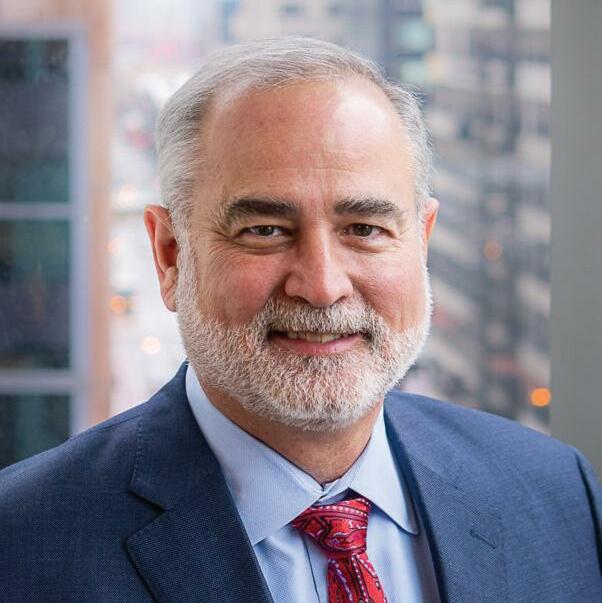
It ’ s Time for Action
Iwish I could say I knew as a child I was going to be a CPA, but the real story is less inspiring I was entering my sophomore year at Michigan, struggling like many to figure out my future, when my dad said, “As long as you know some accounting, you’ll always be able to get a job ” Fortunately, I listened to his advice I signed up for the intro accounting class with plans to stop if it wasn’t any fun and before I knew what had happened, I was accepting a job with
Arthur Andersen in Chicago
One of many things I love about our profession is that there are so many paths we can follow even when the way forward isn’t quite clear My entire career, for instance, has been in public accounting, but I’ve hung my hat at large firms, very small firms including 11 years as a sole practitioner a medium-sized local firm, and now with CPA and consulting firm Wiplfi LLP And for more than 30 years now, I’ve been active with the Illinois CPA Society from a regular dues-paying member, to a committee member, to now leading the board of directors Each stop along the way has left me wiser and more excited about what the future of the profession holds
Have things changed much over the years? Let’s just say that my desk phone at Andersen had a rotary dial, and today there is no phone on my desk as my calls go through my computer Technology has changed what we do for our companies and clients, how we do it, with whom we do it, where we do it, and when we do it The one constant in my career has been that those who embrace change thrive, and those who resist it often do not
We’ve also advanced in areas besides technology, although at a much slower pace Our profession is more diverse than when I started, but still not as diverse as the society we serve We must do more to be a profession that actively works to enable everyone to enjoy the benefits provided by a career in accounting and finance This means educating diverse audiences about our profession,
encouraging students to study accounting, providing a helping hand with scholarships and mentoring, and looking beyond the “usual suspects” when it comes to where and how we recruit talent
While some of you may worry that technology will disrupt our profession in once unimaginable ways, from automating certain tasks and eliminating jobs to developing alternatives to the audited financial statement, I’ve been around long enough to know three things: 1) I can’t predict the future;
2) change will happen whether I want it to or not; and
3) those who embrace change will recognize the resulting opportunities and thrive
Put simply, we ’ ve been discussing the impact of technology and the benefits of diversity for several years; now it’s time for action not just on the part of the Illinois CPA Society but by all of us It’s time to move past talking about advancing technology to implementing it It’s time to move past reading about the business benefits of improving diversity and inclusion and start hiring, mentoring, and advancing more diverse employees Embracing change, both social and technological, is the smart business thing to do, and it’s time we all do it
I’m honored to be your chairperson this year, and I am excited about what we can all accomplish together Let’s take action and keep moving forward together
6 INSIGHT | www icpas org/insight
It ’ s time to stop talking about the future of the accounting and finance profession and start shaping it.
WOMEN’S LEADERSHIP FORUM

KEYNOTE SPEAKER
Kim Simios, CPA
Office Managing Partner, EY
Friday, May 10, 2019
Radisson Blu Chicago
REGISTER TODAY: Call 800.993.0407 or visit www.icpas.org/women
Women to Watch Award Winners
EXPERIENCED LEADER WINNER
Rebekuh Eley, CPA, MST
Senior Manager, RSM US LLP
EXPERIENCED LEADER WINNER
Kristen L. Fitzpatrick, CPA
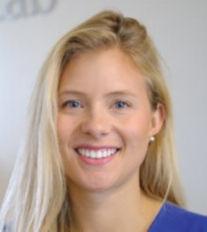
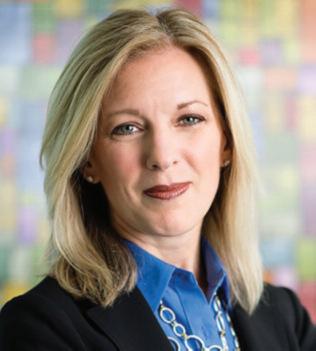
Managing Principal, Miller Cooper & Co., Ltd.

EMERGING LEADER WINNER
Julia M. Haried
Audit & Assurance In-Charge, Deloitte & Touche LLP
Co-Founder and Executive Director, MakerGirl
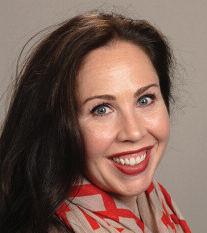
EMERGING LEADER WINNER
Charlene Rhinehart, CPA
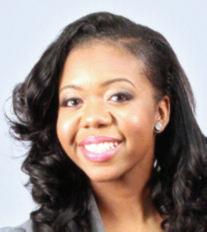
Founder & Editor-in-Chief, Wealthy Women Daily
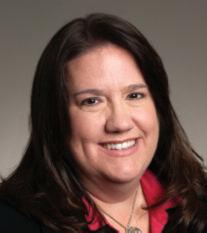
PLUS: 2019
FEATURING:
Live, lead and inspire authentically!
us for an invigorating morning to tap into the power-building behaviors that can help ignite your passion and unleash your inner potential.
Join
INSIGHTS FROM
Pritzker Speeds Through the Honeymoon Period
Illinois’
34th governor is off to the races Gov J B Pritzker wasted no time during the typical honeymoon period in office and instead began advancing his gubernatorial agenda with quick executive orders and a consolidated constitutionally required budget address that was blended with the State of the State Address
In his first state operating budget, Pritzker proposed a host of new taxes to build Illinois a “bridge to a stable fiscal future ” In dealing with an estimated $3 2 billion budget hole, Pritzker is calling for $1 3 billion in new revenues from new or increased taxes on legalized recreational marijuana, sports betting, e-cigarettes and cigarettes, plastic shopping bags, and managed care organizations Pritzker is eyeing some savings by phasing out the private school scholarship credit, imposing a progressive tax on video gaming, capping the retailer sales tax discount at $1,000 per vendor, offering a delinquent tax amnesty program, and decoupling from the federal repatriation tax credit
Pritzker’s budget proposal also extends the state public pension ramp payments by seven years and infuses the system with cash by selling off unspecified state assets, which could save $878 million Pritzker further proposed selling another $2 billion in general obligation bonds to pay down the state’s bills and reduce interest payments and further savings could come from lowering the interest rate in the state Prompt Payment Act
However, successfully amending the Illinois Constitution to replace the state’s flat income tax with a graduated income tax is also central to Pritzker’s long-term plan to stabilize the state’s finances and public pension plans This is a potentially contentious position to be in The mechanics of moving to a graduated income tax requires both the Illinois House and Senate to pass a Joint Resolution Constitutional Amendment (JRCA) by a three-fifths majority vote, which the Democrat supermajorities in each chamber could readily pass without Republican votes
Providing the JRCA passes both chambers, the decision will turn to Illinois voters in the November 2020 General Election If voters approve the amendment, the General Assembly would need to pass legislation establishing income tax rates, and a graduated income tax could likely go into effect in 2021
The premise of a graduated income tax is that high wage earners pay higher tax rates, increasing tax revenues for the state’s coffers Putting this into motion requires a heavy lift, but I suspect the issue will be put on a legislative fast track because Pritzker’s proposal
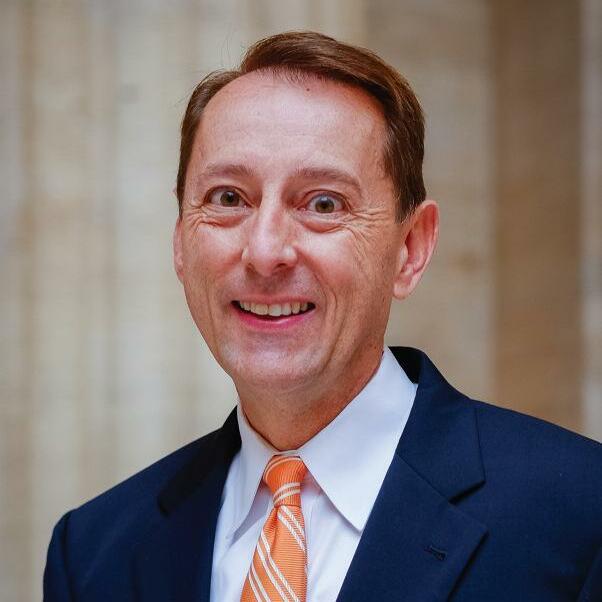
8 INSIGHT | www icpas org/insight
Pritzker ’ s promise of a bridge to a stable fiscal future still leaves a lot of potholes to avoid.
capitolreport
LEGISLATIVE
MARTY GREEN, ESQ , ICPAS VP OF GOVERNMENT RELATIONS @GreenMarty
hinges on it In fact, Illinois Senate President John Cullerton has already indicated a willingness to move away from past JRCA voting practices to have the Senate vote on the amendment this year
While not as austere as many Republicans would have wished, Pritzker’s budget proposal highlights the stark realities of Illinois’ fiscal situation Without judging the merits of the governor ’ s proposals, he has at least shown a willingness to make tough decisions to bring short- and long-term fiscal stability to Illinois
It’s no secret that our past elected officials have generally avoided making the tough decisions needed to truly restore Illinois to long-term fiscal stability Maintaining the status quo and kicking the can down the road has only exasperated Illinois’ downward spiral You don’t need me to tell you that real solutions to Illinois’ problems are not easy and will not be pain free In fact, we are all likely to feel some pain in various forms, whether it be increased income taxes, paying for shopping bags, increased healthcare costs, reduced state services or programs, or something else
Illinois voters elected Pritzker to execute on his campaign platform and promises, which included big causes, like increasing the state’s minimum wage, moving to a graduated income tax, and reforming the state’s pension system He has shown leadership, taking quick action and bringing proposals to the General Assembly To little surprise, Pritzker’s first major victory came by way of working with Democrats in the House and Senate to pass a graduated $15 per hour state minimum wage But Pritzker knows that he cannot solve Illinois’ problems alone and that bi-partisanship is needed he has appointed Republicans to his cabinet and has reached out to Republican legislators
Still, aside from the enormity of the issues above, the challenge will always be bridging the political divide in the General Assembly Let’s hope that partisan gridlock can be avoided, and our elected officials can collectively work together on resolving our state’s critical issues and making the tough decisions that will ultimately turn Illinois around and put us all back on the road to prosperity
Author s Note: This column includes my personal observations of the evolution of the legislative environment and are not necessarily the views of the Illinois CPA Society

www icpas org/insight | SPRING 2019 9 YOU WON’T WANT TO MISS IT! Augus t 27-28, 20 19 Donald E S tephens Convention Center Rosemont, Illinois
nois CPA Society’s Washington Wylie
r tunity Fund
“This program changed my life! I received helpful resume tips, inter view advice, and learned all about the CPA exam I also learned impor tant lessons about my professional presence, attitude, and etiquette, which has provided me with a greater sense of self-confidence ”
 Abisola Oladigbo
Abisola Oladigbo
President ’s Paver s
$75,000
Dempsey J Travis Foundation
$50,000
Ar thur R Wyatt Trust
$30,000
Deloitte LLP
$20,000
Illinois CPA Society
Belverd Needles Jr & Marian Powers
PricewaterhouseCoopers LLP
$10,000
Crowe LLP
$2,500 - $5,000
Alverin M Cornell Foundation
Follett Corporation
Kenneth & Jacqueline Hull
ICPAS Women’s Committee
Edilber to & Carmelita Or tiz
Catherine Villinski
$1,000 - $2,499
Anonymous
Maria Fides Balita
BKD Foundation
Howard Blumstein
Rose Cammarata
Cameron Clark
CNA Foundation
Wayne & Jan Ebersberger
Lindy Ellis
Ar thur Farber
the Illinois CPA Society, would like to graciously thank our generous donor s for their contr ibutions and pledges throughout the past year
These individuals and organizations make a signif icant, life-changing impact on the lives of diverse and deser ving future CPAs across the st ate.
HIGHLIGHTS:
$200K awarded 170 scholar ships 1 ,030 donor s
(April 1, 2018 - March 15, 2019)
Mark Glochowsky
Lee Gould
Geof frey Harlow
Sheldon Holzman
Scott Hur witz
ICPAS Young Professional’s Group
Stacy Janiak
John E & Jeanne T Hughes
Charitable Foundation
Kenton Klaus
Joe & Sue Kosinski
Dave & Darlene Landsittel
Dorri McWhor ter
Sara Mikuta
Elizabeth Murphy
Beth Pagnotta
Floyd Perkins
Melody Ragan
Kim Rice
Jennifer Roan
John Rogers
Deborah Rood
Stella Marie Santos
J Bradley Sargent
Todd Shapiro
Scott Stef fens
Duane Suits
Myra Swick
Kimberley Waite
Connie Watkins
Jef fer y & Julie Watson
Mar y Ann Webb
Wipfli Foundation Inc
Lawrence & Nancy Wojcik
Donna & Phillip Zarcone
$500 - $999
Anonymous (2)
Brent Baccus
John Bird
Mar trice Caldwell
Gar y Fish
Sharon Gregor
Lisa Hanlon
Edward Hannon
Lisa Har tkopf
Margaret Hickey
ICPAS Central Chapter
Anne Kohler
Connie Lindsey
Thomas Mur tagh
Kristie Paskvan
JoAnna Simek
Elizabeth Sloan
Ronald Sonenthal
Richard Thompson
Lise Valentine
Adriane Wong
$250 - $499
Owen Bailitz
Ar thur Barrett
Genevieve Burns
Krista Caprini
Har vey Coustan
Stephen Ferrara
Mar y Fuller
Rober t Giblichman
Lawrence Gill
Marla Gordon
Bill Graf
Gar y Har t
Jonathan Hauser
Maggie Hein
Angela Hickey
Wendy Kelly
James Lindsey
Caroline Linton
Richard & Donna Loraine
Rocco & Roxanne Mar tino
Rita McConville
Miller Cooper & Co, Ltd
Ilaria Mocciaro
Jason Parish
Amanda Pictor
Elizabeth Pittelkow Kittner
Kenneth Posner
Maria Prado
The Price CPA Group, P C
Roy Raemer
Dan Rahill
Elizabeth Roghair
Katherine Scherer
Victoria Schmuker
John Suby
Gerard Swick
Daniel Tews
Meredith Vogel
Richard Ziegler
Julie Zielke
$100 -
$249
Anonymous (10)
Sheldon Abrams
Michael Amoroso
Avidity Technologies, Inc
Yvette Barrett
Lisa Benson
Joseph Bigane, III
Brian Blaha
Kristine Blumka
James Brennan
Kymberly Buchanan
Elizabeth Buf fardi
Margaret Car tier
Gerald Catalano
Vilma Chan
Susan Coats
Bridget Coleman
Covenant United Church of Christ
Abbie Davidson
Jon Davis
James Dolinar
Amy Dybowski
Sharon Ferrin
James Forhan
Jennifer Forssander
T h e C PA E n d ow m e n t Fu n d o f I l l i n o i s , t h e c h a r i t a b l e par tner
of
Sharon Fr ydman
Fred Fugate
Kathr yn Garlow
Gar y Genenbacher
Rober t Gibson
Terr y Godbold
Christina Golsch
Laura Guzman
Rober t Hannigan
Ar thur Hargray
Michael Har tley
Elaine Igleman
James Johnston
David Kalet
Dustin Kapsa
Jason Klein
Thomas Kuchta
Deborah Kur tzke
Paul Lau
Margaret Lawlis
Cher yl LeeVan
Sara Leone
Laura Maniola
Randy Markowitz
Thomas McNally
Terr y Michaels
David Murphy
Kenneth & Kathleen Naatz
Stephen Nor th
Bennet Ockrim
William O’Neill
Charles Phillips
R Bruce Pickens
Ernest Potter
Gilda Priebe
James Quaid
Deborah Ringer
Joseph Rivkin
Joan Rockey
Camille Rudy
John Saladino
Michael Santay
Jennifer Schultz
Richard Shapiro
Christine Smith
Laurence Sophian
Claire Stevens
Warren Stippich, Jr
John Stuckey
Michael Tadla
William Taylor
John Tolar
Andrea Urban
Michael Wenzel
Jay Wilensky
Doyoung Yong
Kenneth Yu
Anthony Zordan
UP TO $99
Anonymous (16)
Donna Ackerson
Sandra Adam
Jane Adams
John Adams
Rao Akella
Benjamin Akers
Jude Alagna
Andrew Alexander
Karin Alfors
Brenda Alkema
Douglas Alkema
Alonzo Allen
Angela Allen
Terri Allen
Alan Allphin
Allstate Giving Campaign
Paul Alpern
Amazon Smile Foundation
Daniel Ammentorp
Constantine Anagnostopoulos
Susan Anderson
Steven Andes
Michele Andjelic-Szewczyk
Karen Andreoni
Lisa Ankenbruck
Gus Antonopoulos
Michael Anzalone
Mesghina Araia
Michael Armour
Valicienne Arnold
Margaret Atkins
Santhosh Augustine
Richard Ave Maria
Xuecen Bai
Brad Baker
Jef frey Baker
David Balderson
Subir Banik
Adebayo Bankole
Michael Bansley
Wayne Barbier
Camila Barranco
William Bauer
Jens Bauml
Terence Bay
Charles Baygood
Dennis Beard
Chris Beaulieu
JoAnn Beck
Lori Beeler
Lizhu Bei
Bashir Bello
Benchmark Aspen & Associates, Ltd
David Bengston
John Berg, Jr
Dana Berglind
Frank Bernatowicz
Howard I Bernstein
Howard M Bernstein
Kenneth Ber trand
Jeannine Cohn Best
Joseph Beussink
James Biegel
Lydia Bilyeu
Brian Bird
John Blackburn
Michael Blakeman
Carla Blanchard
Jolanta Bodniak
Michael Bollinger
Irma Bondi
Chirstopher Bonnell
Leann Bonnett
Basil Booton
Kelly Borgardt
Gar y Bowen
Lindsey Brake
Michelle Brannigan
Thomas Brescia
Mar y Bresson
Timothy Brinkman
Thomas Broderick
David Broutman
Dorothy Brown
Marcia Brown
Michael Brown
Todd Brown
Dale Brubaker
Andrew Bruce
Joseph Br yk
Amy Buonopane
Teresa Burczak
John Burghout
Nicholas Burke
Margaret Butsback
Ijilmaa Byambaa
Nicholas Caccamo
Paolo Camoletto
Dariusz Caputa
Antonita Caraan
John Caraher
Eileen Carrero
Brian Carroll
Andrew Car ter
John Casey
Charles Cassin
Alan Caughey
Karen Cederoth
Kenneth Chadwick
Rober t Chalberg
Catherine Chan
Farhan Chaudhar y
Harpreet Chawla
Hui Chen
Scott Cheshareck
Rober t Chicoine
Marc Chudy
Matthew Cianciarulo
David Ciasto
John Clark
Susan Clarke
Anthony Clesceri
Marsha Clesceri
Ayala Clinkman
D Close
Suzanne Clough
Michael Cochrane
Marcia Cof fman
Herber t Cohen
Janice Coker
Jay Colber t
Bradford Colby
Kevin Conarchy
William Condon
Christopher Conneely
John Conway
Sarah Cook
Michael Copher
Alan Cornue
Louis Cosentine
Dustin Courson
Lisa Cowhey
Diane Craanen
Daniel Craig
Marcia Craig
Laura Crane
James Cunningham, Jr
Kevin Currid
Joseph Czopek
Angie Dallam
Mark Dallas
Joseph Daniel
N Davidson
Mark Davis
George De Heer
Ariel Dechter
Paul DeFiore
Alan DeMar
Jenny DeNosaquo- Wilson
Michael Denton
Rajesh Deora
Alicia Derrah
Andrew Dever y
John Devitt
Jessica Dicesare
James Dickey
Joseph Diehl
Kevin Diehl
Kathleen Dienhar t
Stephen Dietz
Toni Diprizio
Stephen Ditman
Allan Donald
Paul Donnell
Mark Dostal
Neil Dougher ty
Joel Downie
Melody Driver
Richard Duf fy
Jonathan Dunmore
Ryan Dwyer
James Dykas
Susan Eby
Christine Edmonstone
Rolf Eilhauer
Thomas Eiselt
Godfrey Ekhomu
Kimi Ellen
Dallie Ellis-Stetson
Denise Engelke
Eric Ephraim
Michael Ericksen
Debra Fahey
Noreen Fahey
Dan Farrell
Scott Farrell
Richard Favors
Pavlo Fedorchuk
Bradley Feitl
Jennifer Feld
Rober t Feldgreber
Carlos Ferreira
Mar y Fink
Alexander Finnegan
Mar tin Fishman
Ralph Fishman
Shari Fitzgerald
Steven Flack
Sara Flaher ty
Conor Flanagan
Thomas Flavin
Ronald Flinn
Jere Fluno
Vincent Forgione, Jr
Linda Forman
Kevin Foster
Michael Frank
Thomas Frank
Carmin Frederick-James
Cindy Freese
Jessica Friedel
Ir win Friedman
Richard Fugiel
Annette Fulcher
Craig Funkhouser
Allan Gabriele
Amber Gaines-Shaw
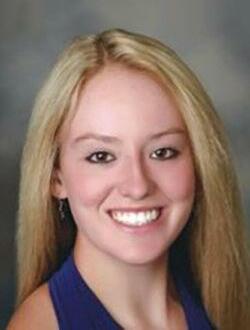
Michael Gallimore
Judith Garber
John Gaynor
Ronald Geib
Tracey Gibbons
Thurman Gills
Edward Gin
Thomas Glavin
Edward Glazar
Todd Glomb
Benjamin Goldberg
Gene Goldberg
Evan Goran-Dr y
Dianne Goren Radtke
Dennis Gorman
Kathleen Gorman
Ryan Goulding
Adrian Graber
James Grady
James Grandos
Leland Graul
Stan Green
Brad Greenberg
Troy Grif fiths
Donald Grossman
Raymond Grothaus
Rober t Grottke
Nancy Grunde
Helen Guagliardo
James Guerra
William Guska, Jr
Donald Hacke
Josef Hajek
Harold Hale
Timothy Hall
Ethel Hall-Langwor thy
Brian Halminiak
M Dean Hamilton
James Hamlin
Nazar Hanafi
Linda Handley
Mar y Hanley–Elzer
Georgann Hanna
Paul Hansen
Glenn Hardesty
Laura Hardy
Dawn Harrelson
Deborah Harris
Douglas Harris
Jef frey Harris
Monica Harrison
Norris Harstad
Patrick Har t
Rosidan Hasan
Rosa Alejandra Haselwood
Richard Hassett
James Haugh
Dennis Hawkins
Rober t Hedrick
Heather Heggemann
“My mother’s tenacity during tough times has inspired me to work diligently toward my goals of becoming a leader in the accounting profession With my two jobs, I’ ve been able to cover most of my expenses, but this scholarship allows me to focus on my grades and campus leadership roles ”
Kiara Schuh
James Heid
Rober t Heisler
John Hellner
Cur tis Helwig
Marianne Her f f
Jennifer Herman
Stanton Herzog
Scott Hickam
Bernard Hicks, Jr
Pamela Higdon
James Hill, Jr
Terr y Hinton
Alan Ho
Dawn Hogan
Russell Holmgren
Jana Holt
Joel Hopkins
John Hopkins
Ilir Hormova
Lorne Horning
Michael Horst
Kathy Hor ton
Kathleen Howe-Hrach
Ann Hughes
John Hughes
Patricia Hughes
David Hutchison
Eileen Iles
Brian Ippensen
Jim Isaacs
Kennth Iwanicki
Joseph Izen
Kenyetta Jackson
Ausra Jaliniauskiene
Mar y James
Michael Jefver t
Dale Jekov
Mark Jewell
Mark Johnson
Pamela Johnson
James Jonelis
Joseph Joyce
Mark Joyce
Barr y Jutovsky
Pamela Kaji
Peter Kaminsky
Vera Kapka
Howard Kaplan
Sharad Kapur
Mar ylou Karkow
John Kavalunas
Karl Keane
James Kelley
Michael Kelsey
Howard Kenner
Bruce Killian
Chee-Young Kim
Sungmin Kim
Dawn Kink
John Kintner
David Kipp
Areno Kirkendoll
Michael Kirschenheiter
“I am a first-generation college student, and English was not the primar y language spoken in my home growing up, which has challenged me to work hard I became more persistent and driven in my personal goal of becoming a CPA because of my role as a student ambassador to help guide other students through their own development ”
Br ian Ta
George Kite
Charles Klemmer
Joseph Klomes
Thomas Kneips
Ronald Knutson
Hung Ko
Alfred Koermer
Jennifer Koller
Alan Kolosh
Ruth Kolpacki
Masahiko Kon
Mar vin Kopulsky
James Kostrewa
Paul Koutek
Terence Kozicki
Harr y Kramer
Karen Kregor
Debra Krillenberger
Treva Kruse
Wayne Krusen
Michael Kudia
John Kulczewski
Karen Kurek
John Kustes
Radojka Lalich
Howard Lamper t
Joshua Lance
Sarah Landeros
Tina Langston- Andersen
Edward Lannon
John Large
Paul Larkin
Cher yl Laska
Babatunde Lawal
Jacek Lazarczyk
Valentina Lazarova
Thomas Lechowicz
Daphne Lee
Shelly Lee
John LeMay
Ar thur Lemke
William Lemna
David Leonhardt
Debra Lessin
Stuar t Levin
Steven Levy
Lawrence Lewandowski
Maurice Lewis
Paul Li

Peter Liao
Michael Liccar
David Lilek
Jui-Yuan Lin
Lin Lin
Jonathan Lindh
Diane Linne
Harr y Lipe
Erica Liskey
Mar y Little
Aixia Liu
Nicholas Lobraco
Karla Lonbardi
Larr y Lonis
Lori Lorgeree
Eric Loughmiller
John Lubke
Rober t Lukaszewicz
Kristina Lukehar t
Armira Lumani
Eric Lundstrom
Lisa Lutz
Michael Lynch
Jennifer Lysaught
Rober t Maas
Thomas Macciaro
Rose Marie Mack
Stephen Mack
Dominic Maduri
Louis Mago
Saeideh Mahamedifard
Kevin Mahoney
Cari Main
James Majernik
Roger Maldonado
Theodore Mandigo
Anthony Mandolini
Lawrence Manelis
Catherine Manning
Kristin Marano
Leonardo Mariano
Jennifer Mark
Danden Mar tello
Margaret Mar tin
William Mar tin
Patricia Marzullo
Anthony Massaro
Alan Maty
JoAnn May
Joan Mazurek
Andrew McCormick
Roxie McCullar
Jef frey McCutcheon
Mark McDonnell
Douglas McElroy
James McEnerney, Jr
John McFadden
Maddy McGannon
Kristin McGill
Kyle McGinnis
Kenneth McGuire
David McKeand
James McKevitt
James McMahon
Richard McNichols III
William McNulty
James McPhedran
Karen Meades
Judith Mequire
Neal Mehlman
John Meister
Richard Melkovitz
Richard Meltzer
Zachar y Metsa
Eva Meyer
Jef frey Meyers
Anne Mieleszuk
Terence Mieling
Nichole Miksa
Brian Milem
Fred Miller
Leonard Miller
Mar y Miller
Randall Miller
Paul Millis
Kenneth Millman
Gar y Mingle
Dan Mirjanich
Lawrence Mish
James Mitchell
Alber t Mitchell, Jr
Ericka Mixon
Lawrence Mocaldo
Aida Modugno
Phillip Molina
James Mommsen
Carolyn Monson
Cynthia Moody
Donna Moore
L Joe Moravy
Karla & Ken Morgan
Michel Morley
Richard Morris, Jr
Brian Morrissey
Jim Motley
Diane Moukheiber
Ernest Mrozek
Jacob Mueller
Carmen Mugnolo
John Mulkerin
Ryan Murnick
Fredric Mussman
Craig Myers
John Myers
Edward Nadler
Himanshu Nagi
Jef frey Narcisi
Kari Natale
John Naughton
Mark Nawrocki
Lawrence Neal
Charles Nelson
Roger Nelson
GJ Neumayer
David Newton
Hames Ngai
Thomas Niemiera
Roger Nietering
Thomas Nystrom
Rober t O’Brien
William O’Brien
Patrick O’Connor
Benjamin O’Malley
William O’Malley
James O’Neill
Karen O’Reilly
Edward Odmark
Phil Oer tli
Joseph Olsen
Alan Omori
Akin Omotosho
Kirk Openchowski
Gerard Oprins
Vincent Osaghae
Thomas Ottenhof f
Thomas Ouseph
Vicki Paavilainen
David Paczak
Tamara Page
Jane Pak
Rober t Palasz
Ashwin Pandav
Alber to Panzeca
Heather Paquette
Lisa Paradowski
Wayne Parsons
Rob Pasquesi
Amy Patton
Whitey Patton
Lorraine Pattulo Banks
Frederick Paulman
David Pavela
Steven Pawlan
David Payne
Floyd Pearl
James Perkins
Elyse Perlik
Rober t Pernini
Natalie Perr y
Rober t Personett
Elaine Pesavento
Mark Pesavento
Carla Peterson
Matt Peterson
Ryan Petrey
Anna Pettyjohn
Julie Pezzopane
Eileen Phelan
Marianne Phelan
Charles Phillips
Dana Phillips
Pamela Piarowski
Paul Pierson
Samuel Pincich, Jr
Sandra Pinter
Terr y Pitcher
Krista Piwonka
Anthony Polinski
Mar tin Pomrehn
Peter Ponzio
Michael Porrey
David Post
Paula Pouliot
Walter Powers
Kathr yn Preston
Jay Price, Jr
David Prill
Clyde Proctor
Thomas Pruim
Sheridan Pulley
Patricia Purpura
Kyle Putnam
Richard Putz
Patricia Quinlan
Aran Quinn
Larr y Rabin
Randi Ragins
Richard Raupp
Wyatt Rawlings
Stephanie Reicher t
Arnold Reingold
Hilda Renteria
Eugene Retzer
Madeline Reyer
Derek Rhoads
R Richardson
Catherine Riddick
Rochelle Rif fer
Michael Ripani
Sandra Ritter
Bernadine Robbins
Elliot Robbins
Dennis Robin
Clark Roemmich
Kenneth Rogers
Michael Rogers
Erna Rokosz
Barr y Roman
Melita Roque
Edward Rosenblat
Nancy Ross
Linda Rossi
Jef frey Roth
T Paul Rowland
John Ruane
William Rudolphsen
Rober t Rush
Andrew Ryon
Maurice Sabath
Ahsan Sadiq
Imran Safvi
Clara Sage
Shin Sakai
Kana Sakaide
Julie Sampson
Alan Sanchez
Dan Sanchez
Rober t Sannwald
Catherine Santoro
Everett Sather
Kathr yn Sauder
Mar vin Schaar
Margaret Schaefer
Phillip Schaefer
David Schafer
Michelle Schef fki
Michael Scherpenberg
Rober t Scheuermann
William Schirmang
Michael Schlatterbeck
Laurie Schmidgall
Michael Schneider
William Schneider
Arnold Schramel
Elizabeth Schreiber
Rober t Schroeder
Richard Schultz
Rober t Schulz
Rober t Schuman
James Schwark
Thomas Scott
Florian Seidel
Dominic Serpico
David Shade
Gar y Shadid
Lawrence Shane
Mark Shaw
Amy Shelly
Justin Shelman
Mustafa Sher wani
Scott Shirk
Rober t Shonk
William Shotts
Wayne Shust
Barbara Siegel
June Silder
Ronald Simon
Stephen Slaber
Andrea Smith
Dayton Smith
Deborah Smith
Gerr y Smith
Mark Smith
Michael Smith
Norris Smith
Roger Smith
Gita Sobti
Sherr y Sokol
Alan Sons
Jef frey Sorenson
Rober t Soule
Stephen Spanola
Joseph Spokas
Gar y St Pierre
Ronald St Pierre
Thomas Stack, Jr
Nancy Stacy
JT Staiger
Daniel Stanovich
Linda Stawicki
Marisa Stefani
Marcy & Harr y Steindler
Christina Stevens
Charles Stich
Lee Stiles, Jr
Jef f Stojak
Carole Sullivan
Harold Sullivan
Stephen Sutton
Steven Swan
Tamra Sweeney
Jessica Swider
Stever Swidler
Julie Swinehar t
Christopher Szczech
David Szerlag
James Taibleson
Anna Talac
Kenneth Thomalla
Julie Thompson
Chengmai Tian
Christie Tipton
Gregor y Tissier
Frank Tlusty
Andrew Todd
Stephen Tomei
Henr y Trefz
Gabrielle Triplette
Paul Trotter
Jay Trudell
Jef frey Uecker
Shunichi Ueno
Brian Unger
Elizabeth Valenziano
Roger Van Buren
Patricia Vardalos
Downey Varey
Ryan Vaughan
John Verchota
Thomas Vicario, Jr
Todd Videbeck
Andrew Villamin
Mario Villan
Our S tudents Count on You
Ever y year, more qualified candidates and deser ving future CPAs apply for our scholarships and programs than we can suppor t You can help us close the gap
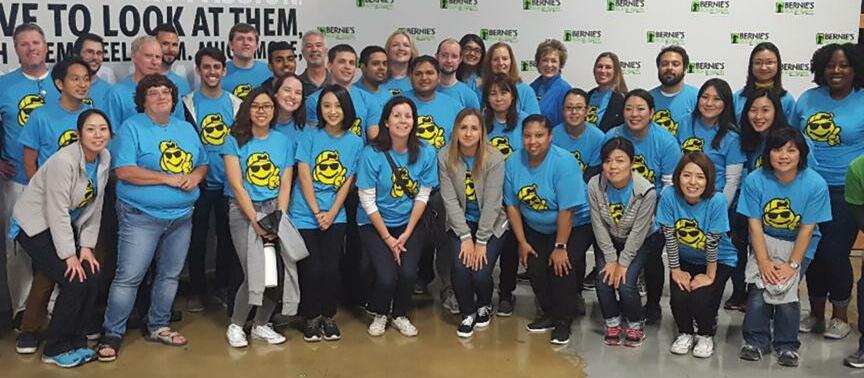
Your generous financial contributions and volunteered time and exper tise are crucial to the sustainability and reach of our programs including:
• Tuition and Textbook Scholarships
• CPA Ex am Awards
• S tudent Ambassador Program
• Mar y T. Washington W y lie Inter nship Preparation Program
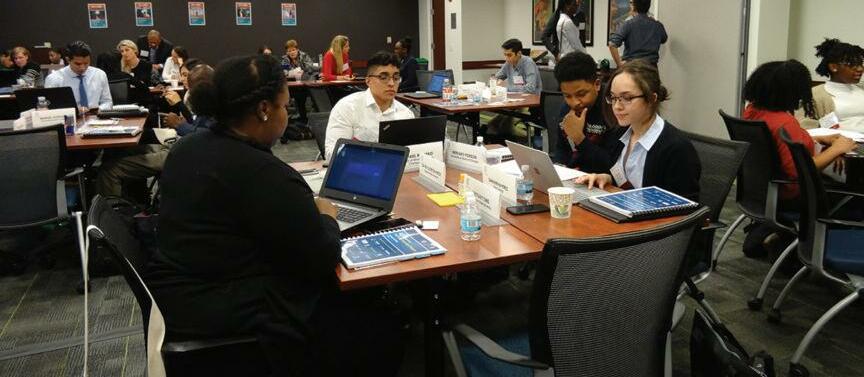
Get involved today to help ensure future CPAs can realize your same success Together, we can make a dif ference
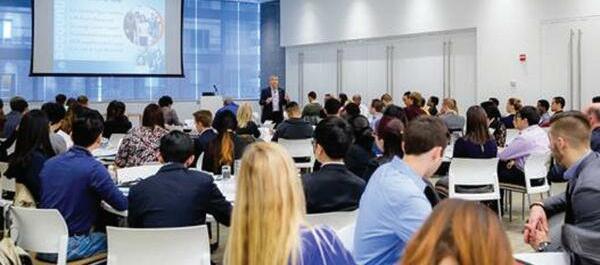
Dan Vitale
William Vlanzy
Timothy Voncina
James L Vour voulias & Associates
Ann Vyas
Richard Walden
Richard Walker
Sherr y Walters
Silene Walters
Jeannette Walton- Weeks
Chan-Yu Wang
Hongyi Wang
Michiko Wargo
Matthew Warren
David War tner
Jef frey Waters
Lenore Waters
Steven Watts
Susan Weber
Shelia Weinberg
Ar vin Weindruch
Jerrold Weinstein
Ronald Weis
Matthew Welch
Darnell Wenzel
Gar y Wenzel
Michael Wenzel
David Wenzelman
Cari Weston
Glen Wher fel
Sandra White
David Wilcoxson
Richard Wilkens
Kelly Willet
Jennifer Williams
Nicole Wilson
Ann Withey
Patricia Wohlfer t
Ann-Marie Wolf
Charles Wolf
David Wolfe
Fred Wolter
Steven Wood
William Woolf
Thomas Woulfe
Huan Xu
Hideaki Yamakawa
Steven Yang
Cristy Young
Gar y Younker
Carl Yudell
Yakai Zheng
Jun Zhou
William Zink
Donors with a multi-year pledge are recognized for the full amount of their pledge in the first year and for their pledge installment amount paid in the remaining years of the pledge Ever y attempt was made to acknowledge all donors who have given during this period If you see a discrepancy, please call 3 12 517 7656
Donate at www.icpas.org/annualfund
Go West, Old Man: A Lesson in Practice Management
Once I became willing to question my practices, I was free to focus on what was best for my firm and the people in it.
BY BRAD SARGENT, CPA/CFF, CFE, CFS, CCA, FABFA – THE SARGENT CONSULTING GROUP

Ihaveheard it said that every stereotype contains a grain of truth
When I entered the world of accounting, I was a young baby boomer being managed, mentored, and directed by traditionalists The cultural environment was challenging at times and I wrangled with old-school partners who seemed one step removed from the caves no offense Now, the proverbial shoe is on the other foot; I struggle with change and adopting the values and mores of the subsequent generations that populate my firm
Gen Xers, millennials, Gen Zers they all seem to value such different things Their collective indifference to my baby boomer values can feel like a distinct lack of gratitude at times Why don’t they all just want to work the way I work and strive for the corner office? Why should I, the partner, bend to their desires when I did so much bending throughout my career? Hadn’t I earned the right to impose my methods and values (and will) on my staff ? I know many of you ask yourselves these same questions But this mindset proved to be debilitating, counter-productive, and stress-inducing, and I’m guessing I’m not the only CPA firm partner struggling to overcome such thoughts Through an arduous process that involved much more failure than success, I began to open my mind to the simple question, “Why do we do it this way?” Once I became willing to question my practices, I was free to focus on what was best for my firm and the people in it
FRESH STARTS
The story I want to share involves a colleague in my firm I met him as a college student when I guest lectured on fraud and forensics at his campus He later came to intern at my firm, where he proved to do excellent work and be a great fit in my small organization It was a no-brainer to bring him on full-time upon graduation (This is the ideal situation for any firm owner ) Three years in, he became a senior staff member with tremendous professional upside His professional toolkit was growing, and he was adding great value to the firm His future with my firm was bright Then the wretched ingrate closed my office door and said, in a very hesitant voice, “We need to talk ”
This colleague I’ve been praising resigned He was leaving not only my firm but our city and time zone He was going West forever All my valuable time invested in mentoring, training, and guiding him was now going to benefit some other firm three states away I had single-handedly crafted this valuable asset and someone else was now going to reap the rewards of my hard work Ah, the ingratitude! The inflexible baby boomer within me could have made for an awkward and unpleasant separation But that is not this story and it shouldn’t be yours
I knew that personal events combined with family support made the change of scenery just what my valued colleague needed With my
14 INSIGHT | www icpas org/insight P R A C T I C E M A N A G E M E N T
head fully wrapped around the concept that producers will always produce, I took his resignation unlike any other resignation I had ever faced I reached out to several professional headhunters to see if they could help him find the right job in his new town I researched the market and offered tips on who to connect with and how to network I had moments during this process that I could not believe I was helping someone valuable leave my firm It was surreal at times, but it was also a benchmark of personal growth and real change in my professional life
As fate would have it, my firm faced a massive workload and my departed colleague relocated without a secured position The new town simply did not offer many prospects which would not require serious compromises for him We stayed in constant contact, and I offered him the opportunity to do contract work remotely while he settled in Why not? After all, he had all the tech tools required to work successfully from his new home and was fully chargeable for weeks on end The rest of my team was glad to have him still plugged in and part of our efforts Win for our clients, win for our team, and win for our ex-colleague That’s a lot of winning, and the story gets better
FRESH FIRMS
As client work continued to flow in, I had an outrageously out-of-thebox thought: Why not bring him back full-time and open a new office in his new town? We were already communicating daily, he knew how to do the work, he was comfortable in business development environments, and with some guidance and input, he could take off I couldn’t believe I was thinking this way It was very new to me and also extremely empowering because, until then, I felt that tight control and occasional micro-management was how I displayed power in the office Now, I realize that opening doors for others is the path to real power
Of course, none of this would have been possible without my colleague’s skills and trustworthiness By being valuable, honest, and forthright, he earned my trust to a degree that made this brave new world of remote work possible So, we talked it out; we committed to a plan Execution was remarkably easy thanks to the technologies available to us today We boxed and shipped his old workstation (VoIP phone, desktop, keyboard, mouse, and three monitors) to his new home We invested in a web conferencing system that allows us to see each other and screen-share If needed, we can have everyone in the firm in separate locations dialed-in and enjoying virtual face-time together
It’s great to have the processes in place for full remote connectivity but working out of the home permanently is not optimal at least not in my baby boomer mind With so many different types of workspaces becoming available in cities these days think shared, coworking, and private spaces available by the hour, day, month, or year the options for launching a firm of any size in a new location become nearly unlimited Between the ease of online research and my colleague’s boots on the ground, we found a great space in a great location at a very reasonable cost complete with a balcony and awesome view to expand my firm out West
I know firsthand the uphill climb one faces in professional services when trying to make connections and meet new people without the proper “rank ” Decision-makers want to interact with other decisionmakers So, while we trumpeted our new office opening, I also promoted my remote colleague to a new title that conveys his knowledge, experience, and competency to the market The old voice in me wanted to declare, “Look at all that I have done for you!” The new voice in me says, “Look at what we are building together!”
FRESH VIEWS
This experience has taught me some incredibly valuable lessons I won’t say it happened quickly, but I became willing to change I also realized that productive members of my team, here and there, would be even more productive given flexible work schedules, unlimited time off, challenging work, and great tech tools all things the Illinois CPA Society and INSIGHT Magazine has been encouraging us to consider for years

To my fellow baby boomers, don’t settle for doing things the same ways simply because that’s how you ’ ve always done them Be open to new possibilities and surround yourself with people who are aware of and embrace the latest tech, business, and cultural trends Ask your younger colleagues what they think and actually listen; you don’t have to always agree with them, but you can learn a great deal about them A questioning mindset and willingness to change should not be generationally unique
To the younger generations in the workforce, be aware that your baby boomer supervisors place great value on two qualities; productivity and trustworthiness Produce at a high rate and doors will open Demonstrate that you are responsible and accountable, and you’ll earn the greater freedom that you crave Try to understand where your colleagues are coming from and “think like a partner ” I understand as well as any of you that it’s hard to let go of entrenched mindsets and that trying new methods may lead to many more failures than successes You may want to run back to the safe harbor your old mindsets seem to provide Don’t The key is to keep trying, keep growing, and enjoy the ride you, your firm, and your people depend on it So, as the saying goes, “Go West, young man!” (Please adapt to your own Manifest Destiny )
www icpas org/insight | SPRING 2019 15
Imagine... a chair without a desk Trent Holmes 800-397-0249 Trent@APS.net www APS net D e l i v e r i n g R e s u lt s - O n e P r a c t i c e At a t i m e
Leveling Up Your Accounting and Finance Credentials
Digital badges and micro - credentials offer accounting and finance pros fun (but serious) ways to master and show off their expertise
BY BRIDGET MCCREA
Likethe badges, medals, and trophies that separate the noobs from the best and keep video gamers grinding away at their craft, digital badges in the business realm stand to separate the generalists from the specialists
While they may not yet hold the same clout as a CPA designation, digital badges earned from online certificate and micro-credential curriculums are becoming invaluable to today’s accounting and finance professionals Thanks to our increasingly digital world where nearly everyone interacts, communicates, and conducts business online being able to display a digital badge earned in data analytics, for instance, can differentiate you as an accountant who is putting in extra effort to stay current and competitive, and is willing to go beyond the basics of continuing education requirements
By definition, a digital badge is a validated indicator of accomplishment, skill, quality, or interest that can be earned in many learning environments and is based on a shared and open
technical standard Much like traditional credential and degree programs have increasingly moved online, this “ new ” assessment and credentialing mechanism is gaining momentum and it makes continuing professional education a little more fun

“With their increased granularity, transparency, and portability, digital credentials are quickly supplanting paper certificates as a means of non-degree skills verification in leading-edge continuing and professional education units,” says Boston University’s Jonathan Lehrich in “Measuring the Value of Digital Credentials ”
And CPAs are particularly well positioned to take advantage of this new trend says digital badging and micro-credentialing proponent Dr Kyle Peck, professor emeritus of education at Penn State University
DRIVING DIFFERENTIATION
“In the accounting world, everyone comes out of school looking the same, and because the CPA is a mega-credential, CPAs tend
16 INSIGHT | www icpas org/insight
P R O F E S S I O N A L E D U C A T I O N
to have relatively broad sets of skills As a result, clients and employers can’t always tell who is better than someone else or who specializes in certain areas of interest,” Peck points out
“Micro-credentials, on the other hand, certify smaller chunks of knowledge and tell everyone (i e , clients, employers, business partners, etc ) that, while you may have a macro-badge that says CPA, along the way you earned other competency-based badges in certain specialty areas, ” Peck continues “Each credential becomes a mini portfolio of your accomplishments These badges become little electronic packages where suddenly, instead of everybody looking the same, I can say, hypothetically, ‘Oh, Brenda’s resume looks good and she has the family tax accounting badge from the Illinois CPA Society ’ The result is a very rich, transparent archive of what someone has done beyond the basic CPA requirements ”
“Most people in the accounting or financial services field already have traditional degrees, designations, and credentials like the CPA, CMA, CFA, CFP, CIA, etc that have served them well But the profession is changing, and changing rapidly,” says Dan McNeill, the Illinois CPA Society’s chief learning director “Specialized digital badges and other forms of micro-credentials are a way to keep up with the changes Think of them as just-in-time designations that give you a way to set yourself apart from others in your field ”
POWERING PROFICIENCIES
Professional services firm EY has already jumped on the digital badging bandwagon to help empower its professionals and bolster business development “As CPAs, our world is quickly evolving Our professionals will need to acquire new skills and credentialize themselves numerous times during their careers, ” explains Jeff Bilek, EY’s talent leader for the Central Region “Digital badging is a program that allows all of our professionals to gain those skills in a real-time way and, most importantly, have a credential that differentiates them in the market ”
To earn a digital badge, employees must complete 20 hours of education from a designated curriculum plus at least one “experience ” The experiences include passing a simulated case study, providing a synopsis on using specific tools in client situations, participating in relevant nonprofit work (i e , Girls Who Code volunteering), or demonstrating digital industry experience (within the last two years), among other options Employees also must complete a contribution requirement that ranges from participating in EY’s Yammer page to bringing that new knowledge to others in the firm by coaching a colleague or publishing an article on the topic Since launching its EY Badges program in November of 2017, nearly 4,300 badges have been earned globally
Once earned, EY’s people are encouraged to display their badges alongside their traditional credentials both inside and outside the organization, which, according to EY’s Global Chairman and CEO Mark Weinberger, opens up new opportunities and increases their long-term professional value
“Digital disruption and new technologies don’t have to be threats but opportunities to continue to grow as a professional,” Weinberger says In an FAQ about EY Badges, the firm says the value of digital badges includes being more relevant for clients while also differentiating yourself and “enhancing your personal brand by building digital skills and credentials that help you be known for your digital expertise ”
LEVELING UP
In a world where online business is projected to replace most traditional transactions, having one or more digital badges in areas like analytics, cybersecurity, machine learning, for instance, can certainly help CPAs and other accounting and finance professionals differentiate themselves and shine a spotlight on their specialties


So, it’s no surprise that McNeill and Peck expect digital badges to continue gaining momentum as more professionals start to use and respect them and as more clients and employers look for them
While he admits there’s still plenty of work to do to get to this point, Peck goes so far as to predict that we’ll see more “aesthetic” credentialing blended into professionals’ digital footprints, with badges awarded for affective qualities like a good sense of humor or resilience “The culmination will be a ‘Wow Badge’ that can just knock someone ’ s socks off,” Peck says
However, like anything when it comes to professional development, McNeill points out that the credential is only as good as the institution behind it “A badge offered by a well-known organization such as the Illinois CPA Society or if you ’ re lucky enough to work for a notable employer which offers digital badges to its employees is going to carry more weight when you add it to your resume or LinkedIn profile than one earned from some digital badge mill,” McNeill cautions “Just make sure to do your homework ”
So, if you didn’t know, now you know: Digital badges are a powerful new tool for identifying and validating your skills, knowledge, accomplishments, and competencies and it’s time to get your game on
www icpas org/insight | SPRING 2019 17
The Home for Cor por ate F inance Professionals Check it out today at www.icpas.org/ccfl
Accounting for the Art of Influence
Earning a voice at the leadership table is different than having a seat at the table Here’s how to develop your language of influence
BY SELENA CHAVIS
Gettinginvited to sit at the leadership table is, or hopefully will be, a key milestone in your career It says a lot about you as a professional, your credibility, and your potential to bring value to an organization But, it’s only the first step to staying power, according to Suzanne Coonan, principal and executive coach with Aerial Leadership, who notes that the greater goal is gaining a “voice” at the table

“Once you are there, it’s about contributing and adding value in an impactful way, ” she says “Otherwise, you are not going to be there very long ”
The difference between having a seat and having a voice at the table is an important distinction for every accounting and finance professional to learn, regardless of whether that perspective begins inside a firm or at the bottom of a corporate ladder After all, success at the table ultimately comes down to one critical factor: influence
Hal Adler, CEO of Leadership Landing, suggests that truly influential leaders often possess three characteristics First, they demonstrate self-awareness that starts with a clear point of view and a distinct way of interacting with others “What style do I embrace? How do I use language?” he suggests asking oneself “It’s important to be consistent If you think about marketing, it’s consistency that allows the message to break through the noise ”
Second, influencers understand the experience of the people around the table For instance, is the audience enthusiastic about new ideas, or do they approach innovation with trepidation?
Finally, leaders with influence bring ideas to the table within the context of an organization’s best interest
Diving deeper, Jay Scherer, president of Scherer Executive Advisors, says becoming influential requires you to have “ an informed point of view, a willingness to do the hard work that comes with understanding and solving issues, and a platform of credibility ” That platform of credibility is a key point worth elaborating on Credibility at the leadership table stems from building strong relationships with the others seated at the table and continues to grow as trust deepens “But your credibility can be quickly destroyed by a perception of self-interest,” Scherer cautions “If those sitting across from you perceive that your point of view is selfserving, versus focused on the business, you’ll never be heard ” “It’s work,” Adler says “Professional services organizations often point us to measurable, tactical tasks, but they don’t orient us to inner development, which helps us be more successful all around All the motivation has to come from inside ”
LEARNING THE LANGUAGE OF INFLUENCE
Coonan points out that a Corporate Executive Board (now part of Gartner) survey found influence is by far one of the most important competencies for global business leaders to possess it’s also the one leaders struggle with most Maybe that’s because communication plays a vital role in the influence equation In fact, without an aura of “executive presence, ” a term Adler describes as being grounded, confident, thoughtful, and underpinned by strong situational awareness, you may come off as anything but influential
18 INSIGHT | www icpas org/insight L E A D E R S H I P & P E O P L E M A N A G E M E N T
A platform of influence is also supported by the confident, concise delivery of an idea backed by conviction, Coonan says In terms of conviction, she suggests considering how you might respond if you receive pushback on your input from others around the table “Do you give up or do you push back with data to support it?” she asks “Having conviction is really important ”
Tone, volume, and body language equally play into conviction and influence, Coonan adds, noting that being able to “turn it up or turn it down” is important for leaders To illustrate, Coonan notes that many of the auditing professionals she coaches are inherently introverted “That’s what makes them really good at the financials,” she says, “but the challenge is how they can show up and ‘turn it up a bit ’ It’s about delivering your message with authority, with the right volume, with a strong and clear tone ”
Scherer says practice and feedback are critical to developing these communication skills “Is there someone you trust who is in a position to observe how you bring up your points, who has the background and experience to offer an informed opinion about how you are doing?” he asks
Adler adds that 360-degree surveys, which provide you with confidential, anonymous feedback from your managers, peers, and direct reports, are very effective at providing a baseline for performance improvement “It takes commitment and inner motivation to want to do anything about it,” he says “You get the feedback, then you reflect; then you interpret; then you set a path for yourself; and then you practice ”
Scherer suggests a business communications program or business communications coach could take your influence up a level: “A program that includes video practice and feedback on your approach will help to ensure your presentation and style are effective ”
SOFT SKILLS IN A HARD BUSINESS WORLD
The combination of a multi-generational workforce coupled with an increasingly socially conscious and complex business world means that today’s professionals need to continuously hone their soft skills to earn and maintain a voice at the table
Amidst all the noise of a more intense business environment, more people are simply vying to be heard Consequently, a powerful soft skill for every influential business leader is the ability to listen
“The leaders who are the most effective at being heard, despite how noisy it has gotten, are actually the ones who listen the best,” Adler says “A leader has to meet people where they are so that they feel heard People need to believe that you understand where they are coming from first ”
“People are doing things that have never been done before,” Coonan says in referring to our changing workplaces and business world “In tandem with an open ear, leaders must increasingly focus on collaboration and their ability to develop and relate to others in an authentic way ”
Along similar lines, Scherer stresses that authentic or genuine respect for others is a core value every aspiring influential leader must possess It is, he says, the basis for being effective in business and life: “While there are roles at different levels in organizations, the people who fill those roles are equal citizens, deserving of respect and the golden rule,” Scherer says “You will win if you consistently treat people with respect ”
While many people focus solely on earning a seat at the leadership table, it’s what they do after achieving it that matters Influence is key to having a voice at the table, and the best influencers know how to find a win-win for all
, C PA , CGMA Director
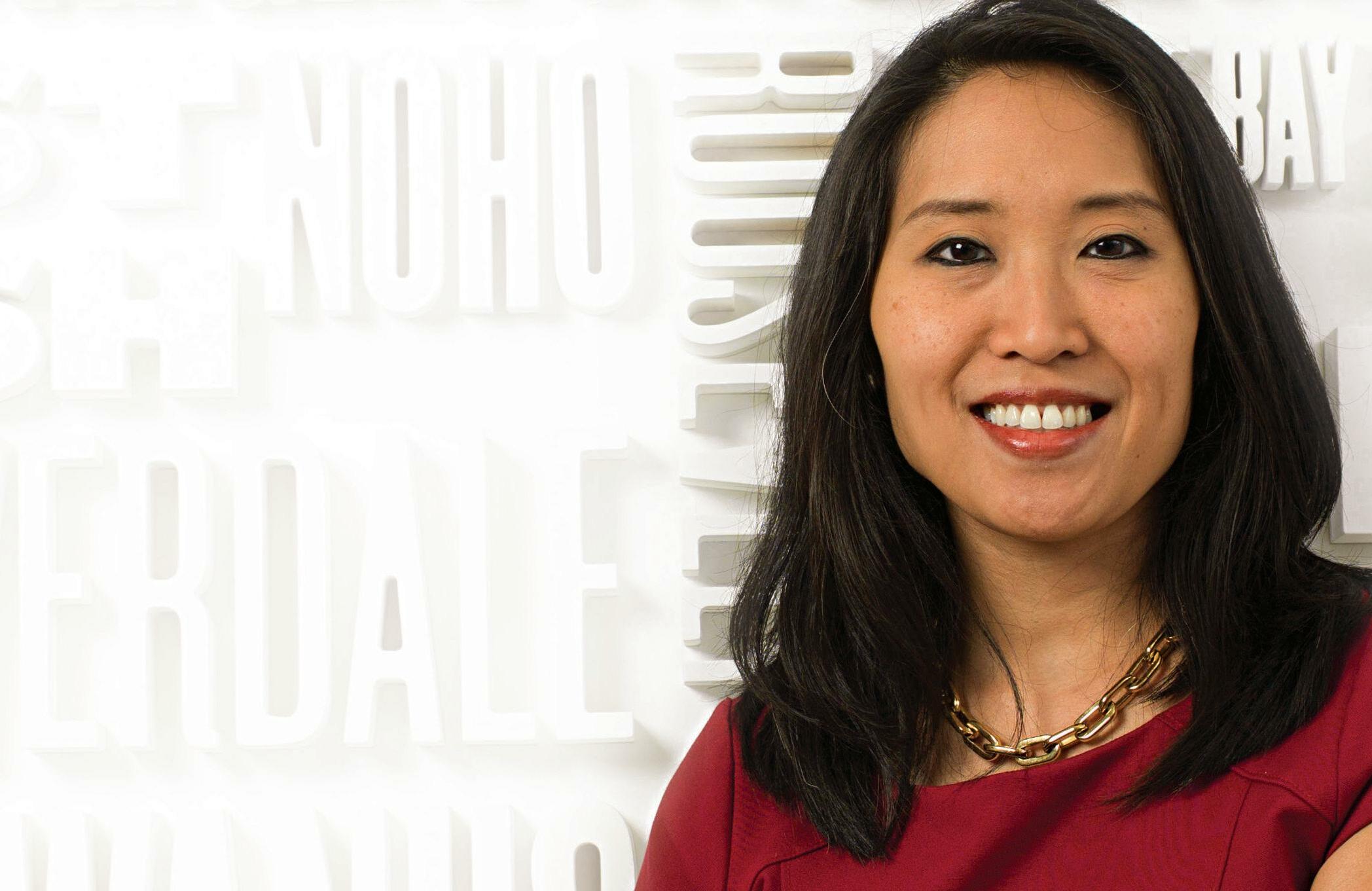
www icpas org/insight | SPRING 2019 19
Expl o r e t h e C GMA® P r ogram: A lifelong professional learning journey that puts you on the path to take your career to a new level You’ll learn and acquire the skills it takes to become a more strategic� con dent� sec�re and insightf�l leader Get started at CGMA.org/Program
a strategic leader. Earn the global designation for nancial professionals.
y
odill
ernstein
o
Acc o
© 2 017 A s s o ciat i o n o f I nter n a t i o n a C ertif i e d P rof e s s i o n a l A ccountants. Al l r ight s r eserved 2 2726C-326
Distinguish yourself as
Holl
R
o B
f
u nting, S o u lCycle
The Business of Making a Social Impact
Corporations, communities, and careerists can all do better by doing good.
By Carolyn Tang KmeT
20 INSIGHT | www icpas org/insight
as technology continues to break down geographic and demographic barriers, greater insight into the plight of others has spawned a collective heightened sense of social awareness. So, it should come with little surprise that emerging generations of workers exhibit a deep desire for doing good, and this philosophy is now permeating the corporate realm. many of today’s organizations must now focus on a triple bottom line, where stakeholder value is measured not only by profitability but also by social and environmental impact but what does that mean for the future of business and the people driving it?
www icpas org/insight | SPRING 2019 21
“The world has become a smaller place,”
says Sylvia Panek, AIF, an investment advisor and financial planner with Natural Investments, a nationwide advisory firm specializing in socially responsible, impact-driven investing She credits our digital information age with fundamentally shifting the public consciousness “As workers and as consumers, people today more closely feel how exploitative traditional corporate practices can be Subsequently, they are pushing back and holding corporations to higher standards,” Panek says “A company does not exist in an isolated bubble and cannot operate as if investors are the only group that matters anymore ”
To say today’s employees actively seek out socially responsible companies might even be an understatement According to a 2016 Cone Communications study, 76 percent of millennials consider a company ’ s social and environmental commitment when deciding where to work, 75 percent would take a pay cut to work for a socially responsible company, and 64 percent won’t take a job if a potential employer doesn’t have strong corporate social responsibility practices One could argue those percentages are likely higher today given how our society has become ever more sensitive to wide-ranging social, political, and environmental issues
And, in fact, a more recent 2017 Cone Communications survey found that 84 percent of consumers want companies to support women ’ s rights and 87 percent would buy a product because a company stood up for an issue they cared about
From a corporate point of view, that means organizations that incorporate making a positive social impact into their missions should have an easier time attracting and retaining employees and customers “Everyone wants to be a part of something great It’s not just about going to work young people are looking to make an impact,” says Houston-based community engagement professional Courtney Taylor, MBA
For Taylor, making a positive social impact, both personally and professionally, is a philosophy instilled from an early age As a child, she recalls going door-to-door with her grandfather one hot Houston summer day, delivering fans to people who didn’t have air conditioning “I never forgot that day because it showed me how everyone is not as fortunate It showed me the responsibility we have to help each other, and it showed me love,” Taylor says Today, Taylor incorporates her love for helping others into her everyday job through developing partnerships with community organizations, developing volunteer opportunities, and securing program funding “I feel that we have a responsibility to lift each other up, ” Taylor says “It put a fire in me to start creating some additional projects around philanthropy and to be involved in systemic change Whether the cause is for at-risk youth, breast cancer, hunger, social justice, I am there ”
Her desire and effort to link a career with a cause is not entirely unique; rather, it is what more and more millennials and Gen Zers are aiming to achieve In light of that, Taylor suggests companies that provide opportunities for volunteer work and actively design programming around driving social change will see positive outcomes
To cite Seth Green, founding director of Loyola University Chicago’s Baumhart Center: “True empathy and a service orientation toward
others makes us better thinkers, happier people, and more satisfied with our lives ”
In Taylor’s interpretation, the morale boost can “lead to increased productivity, which will help the overall bottom line of an organization It’s a win for the employee, the company, and the community ”
Conscious Capital
“The question of how we build a more equitable society is the most urgent and important question of our time,” according to Green, who says that making a social impact is good for the mind, heart, and soul and business After all, not only are socially responsible companies more attractive to potential employees, they are also increasingly more attractive to prospective investors
“Doing good in business was once ‘nice ’ Today, it is a ‘must’ for any company that wants to attract top talent, investment, and operational partners,” Green says “Many investors now measure the triple bottom line, or environmental and social impact alongside financial performance ” And, in fact, many investors now strive almost solely to affect social change
Benefit Chicago a collaboration between The Chicago Community Trust, the John D and Catherine T MacArthur Foundation, and Calvert Impact Capital came to be partly because investors today are less willing to accept social inequities and are instead looking for opportunities to take an active role in society The organization serves as a conduit between investors looking to make a positive social impact and promising businesses and organizations in underserved neighborhoods that need access to capital
Benefit Chicago evaluates potential opportunities in much the same way as any traditional investment, looking for evidence of strong leadership, solid organizational structure, a thorough business plan, and a proven market “Where we differ is that we ’ re willing to work with organizations that may have a little more risk than what you would typically see but also still have a real passion and idea,” says William W Towns, Ph D , MBA, Benefit Chicago’s executive director “There are certain areas of Chicago that, for a number of reasons, don’t receive capital You can see the disparities in the city But if we ’ re going to have a strong Chicago, we need strong South and West sides ”
To illustrate, this past December, Benefit Chicago provided Chicago Community Loan Fund (CCLF) with a $5 million loan to aid in repurposing vacant Chicago Public School buildings on the South and West sides The first redevelopment is the conversion of the former Overton School in the Bronzeville neighborhood, which will be transformed into a business incubator “For local residents, a closed school signals distress and abandonment,” says Calvin Homes, CCLF’s president “A revived and repurposed school is a beacon of hope for a neighborhood It provides needed services and amenities, boosts traffic for nearby businesses, and encourages additional investment ”
At the time of writing, Benefit Chicago had raised $96 million toward its $100 million goal and has issued over $25 million in loans “A lot of times, we ’ re underwriting the financial aspect, which
22 INSIGHT | www icpas org/insight
is important, but we ’ re also underwriting the hearts and minds of the leadership and the mission,” Dr Towns says Social Venture Partners (SVP) is another entity striving for social change in Chicago using conscious capital and more The organization is comprised of investors, entrepreneurs, business professionals, attorneys, educators, and philanthropists who invest time, money, and expertise in Chicagoland nonprofits
“Our founding partners believed that the route to greater social impact is to leverage philanthropic dollars with contributions of time, talent, and connections to help innovative nonprofits scale their work,” explains
Evelyn Kuo Fitzgerald, SVP’s executive director
Your Impact
It’s important to remember that it’s not just big corporations and investors that have the power to drive social change and make a social impact While the deep desire for doing good that emerging generations of workers exhibit may be inspiring corporate reactions, it still takes individuals committed to causes to make real, lasting social impacts
Taylor urges young professionals who want to make a difference to get out there and just do it “Figure out what you are passionate about,” she says “Many nonprofits and community organizations have created young professional groups that offer opportunities for networking, community service, and social gatherings with likeminded individuals ”
Fitzgerald’s advice for those yearning to make a positive social impact through their life’s work is to participate in engaged philanthropy and to maximize impact by contributing not only dollars but also intellectual and social capital “Consider joining a group or nonprofit board where you can roll up your sleeves and engage in skills-based volunteering that takes advantage of the expertise that you bring to the table,” Fitzgerald says
No matter what your background is, everyone has something to offer, Dr Towns adds “If you ’ re an accountant, if you ’ re a marketing professional, or sales person, there are always opportunities to add a social impact lens to your work,” he says “Think beyond the philanthropic and nonprofit space For-profit organizations have contributed greatly to societal issues and improvement, whether it’s reducing their impact on the ozone or creating spaces for women in leadership ”
Expanding on Dr Towns’ advice, Green encourages young professionals to seek jobs where they can learn a lot, work for people they admire, and use their talents to authentically help others “Very few people look back at their careers and celebrate their wealth accumulation; almost all judge their careers by the difference they make in others’ lives,” he says
“Like begets like,” Panek adds She urges young careerists to surround themselves with like-minded business associates “The goal,” she says, “is to truly build a better world, one that is bigger than each one of us individually, and it’s best done together ”
Seeking Social Impact
He started out as an investment banker in london, but quickly realized the job wasn’t for him He felt uninspired and chronically depressed So, leon logothetis walked away from corporate life, trading in his seat behind a desk for a saddle on a motorbike and a life on the road in pursuit of “true human connection ” now as the host of his own netflix series, “The Kindness Diaries,” logothetis circumnavigates the globe on a vintage motorbike, experiencing the kindness of strangers and giving them life-changing gifts in return

“Social impact is about taking risks and going outside of your comfort zone,” logothetis says “When I finally started traveling and connecting with others, I realized I had found my calling ”
This June, logothetis will keynote the Illinois CPa Society’s young Professionals leadership Conference where he’ll remind young leaders to examine their paths in life, and to recognize that even as mere individuals, they have the power to make an impact in the world
“I’ve seen people with nothing go out of their way to help others in amazing ways These people have nothing, yet they changed my life forever If they can do it, so can you,” logothetis beams “It’s about taking risks and looking outside of yourself you have more power than you know, and how you show up in the world matters it matters profoundly.”
SOCIAL IMPACT
feaTUreD KeynoTe:
Leon Logothetis
global adventurer, motivational Speaker, and author/Creator of the Book and netflix show, “The Kindness Diaries.”
June 7, 2019 | 8:00am - 12:00Pm
THe meTroPolITan Chicago
www icpas org/insight | SPRING 2019 23
Illinois CPa Society’s young Professionals leaDerSHIP ConferenCe
Register today at www.icpas.org/yp
T E
BY STEPHANIE HYDE AND WILSON CHOW
robots will play a critical role throughout the modern workforce. a recent PwC study of 29 countries estimated that on average, the proportion of jobs at high risk of automation will be roughly 20 percent by the late 2020s, and 30 percent by the mid-2030s for employees around the globe, such shifts could mean preparing to share space with robots as colleagues or learning new skills as robots take over the most repetitive or dangerous tasks
When we talk about robots, we are essentially referring to two kinds: industrial robots and service robots. Industrial robots are found in factories or work environments that use assembly lines or similar approaches to build products or pick and pack orders at a fulfillment center. Service robots stand in for humans and are not necessarily machines; in certain cases, they are applications of artificial intelligence or robotic process automation (rPa). Both varieties will be transformative for many workers, depending on their industry and role
24 INSIGHT | www icpas org/insight
H O W R O B O T S W I L L T R A N S F O R M T H E C - S U I
Senior executives need to lead a workforce that seamlessly blends human talent and automation.
www icpas org/insight | SPRING 2019 25
The introduction of robots into the workforce will also reverberate in the C-suite. not only will top executives lead the charge for automation in their business operations, but they must also be prepared for their own jobs to change Heading up a hybrid workforce of people and robots will require a different type of leadership, one that blends quintessential human skills such as empathy with a tech-savvy and data-driven mindset moreover, new roles may emerge, such as the chief robotics officer, or leaders in charge of technology ethics given these urgencies, C-suite leaders need to start planning a fiveto 10-year road map of their career and organization today Senior leaders must objectively assess not only their own strengths, but also where they have knowledge or experience gaps areas where they need to build new skills. a recent PwC study found, as one might expect, that those in senior management roles are less likely than, for example, those in factory or clerical roles to be entirely displaced by automation But the nature of leaders’ work will undoubtedly undergo major shifts These shifts will open up more time for forwardlooking activities; executives will be helped further here by the presence of increasingly sophisticated data meanwhile, leaders in customer-facing roles need to figure out how to best serve customers, taking advantage of automation to provide customized products and services on demand
functional leaders must consider the following matters as they define their role in the age of robots: What actions will they need to take now to prepare for the ways that robots will transform their industry and business? Structurally, what has to change in the organization? What type of people do they need, how will they work together, and
what will be their roles and responsibilities in this new world? How will functional leaders manage this hybrid workforce to ensure a harmonious existence of human and robot workers?
C H I E F E X E C U T I V E O F F I C E R S
responsibility for sound management begins at the head of the Csuite Ceos will need to provide their company’s vision and leadership, driving the change and guiding the company through its digital transformation Ceos will also need to demonstrate personal commitment to this effort, holding themselves and others accountable. and, with respect to robots and related applications of aI, the chief executive must make sure the board of directors has the expertise to oversee proper governance and guide decision making. Ceos will also be involved in helping foster a culture in which humans and robots coexist with trust, respect, and dignity
C H I E F F I N A N C I A L O F F I C E R S
Cfos will have to embrace this change at the same time, they will have to keep their eye on whether the investment in automating finance-related tasks and tasks in other departments as well is paying off. Cfos will oversee compliance activities and take steps required to build trust with regulators and investors by ensuring that financial output from automated systems can be explained, and the risks of automation can be mitigated Cfos in the robotics age will need to understand both physical and digital relationships (for example, a relationship with a third-party vendor that uses robots to fulfill its service agreements) and put necessary controls in place finance leaders will oversee the transition as robots take on more and more back-office functions such as trade settlements and daily trade reports freeing people to grapple with high-level analysis and decision making that add value rather than ticking off to-dos Cfos will need to ensure that people are able to build the automation, interpret results, and maintain control
26 INSIGHT | www icpas org/insight
C H I E F O P E R AT I N G O F F I C E R S
Coos will play a key role in managing the transformation to a human–robot hybrid workforce. They must close any gaps in their knowledge of the technology as they develop a keen sense of how the changes are impacting the business.
Specifics may differ by industry In manufacturing, for example, automation’s primary value comes from creating capacity, lowering costs, improving safety, and injecting the manufacturing environment with flexibility and agility automation should not be done for its own sake Coos should formulate and follow a digital strategy that incorporates aI or robotics Investments in automation must have a clear role in reshaping the manufacturing footprint and streamlining the supply chain, which may also incorporate technologies such as blockchain and the industrial Internet of Things
C H I E F H U M A N R E S O U R C E S O F F I C E R S
CHros will also see their role greatly affected by robots like their Csuite counterparts, these leaders will need to expand their skills to succeed. a recent PwC survey of business and Hr leaders found that 41 percent of Hr executives are confident that their departments are up to speed in advanced technologies, but only a quarter of other business leaders have similar confidence about their Hr departments.
In addition to increasing their technology acumen, Hr leaders must address a number of cultural issues, including how best to manage robots and train people to do the same Hr leaders also need to assess their employees' current capabilities, with an eye toward upskilling and re-skilling and at the same time, they have to ensure that future employees are being adequately educated and trained to enter fields that look different today than they will look in five or 10 years In other words, leaders need to consider the skills their people have now, as well as the ones the company will need to recruit moving forward
most important, Hr and talent leaders have to embrace the idea that in the new world of automation, it’s not the jobs they need to protect as much as it is the people It will be up to these executives to help employees understand how they’ll benefit from automation in the long run, while also developing the leadership capabilities of managers so they can effectively guide employees through the changes ahead encourage employees to embrace the idea that automation will help make their jobs more fulfilling and make those employees even more valuable to the company
C H I E F M A R K E T I N G O F F I C E R S
In this environment, marketing will be seen as less of a cost center and more of a source of revenue This has critical implications for the Cmo, whose role will become increasingly driven by data analytics Customers will expect to have the ability to personalize products and
content, so in sectors such as retail and media, marketing leaders will work closely with sales to be sure they can deliver on customer demands advanced analytics performed mostly by robots will give executives more time to plan product road maps and set strategy
finally, no discussion of how the rise of robots will impact business leaders would be complete without addressing technology executives. CIos, CTos, and CDos may in some companies and industries be joined by Cros, or chief robotics officers, who will work closely with finance executives as they navigate a new landscape of risk and compliance Tech leaders will have a lot on their plate: cybersecurity, data management and analytics, and the myriad ways that automation technologies will impact all parts of the business They will need to shift their focus from managing cost to generating revenue and they have to collaborate more with tech, robotics, and aI players and startups in order to enhance infrastructure and upskill IT capabilities
It’s also possible that we will see convergence of these various tech leadership roles, with some expanding and some being absorbed into others, as teams and functions become more deeply integrated as with all business transformation, companies will not integrate automation overnight However, given the pace of adoption, the Csuite has to adapt as emerging technologies quickly gain prominence and scale If you, as a senior leader, want to come out ahead, you should start discussing these changes with your fellow functional leaders today to lay the groundwork for your long-term strategy as you begin these difficult conversations, don’t lose sight of your ultimate purpose, and recognize how the decisions you make today will be perceived tomorrow It’s all too easy to allow data-driven thinking to overshadow commitment to purpose, and leaders will need to be proactive about incorporating both ways of thinking The reality is that your workforce will integrate robots soon if it hasn’t already and if it hasn’t already, you may be falling behind are you prepared to guide your people through this transformation?
“How robots Will Transform the C-Suite" © 2019 PwC all rights reserved PwC refers to the PwC network and/or one or more of its member firms, each of which is a separate legal entity Please see www pwc com/structure for further details no reproduction is permitted in whole or part without written permission of PwC “strategy+business” is a trademark of PwC
www icpas org/insight | SPRING 2019 27
C H I E F I N F O R M AT I O N O F F I C E R S , C H I E F T E C H N O L O GY O F F I C E R S , A N D C H I E F D I G I TA L O F F I C E R S
How will functional leader s manage a hybrid workfor ce t o ensur e a har monious exist ence of human and r obot worker s?
Gender Parity: A Long Way to Go

The accounting and finance profession has a long way to go to reach gender parity across its leadership ranks, but putting women’s advancement and personal development at the top of the to-do list could tip the scales toward empowerment and equality.
By Cl are FiTzgerald
Women today are on the move, shaking up old norms and solidifying a new sense of professional empowerment as more women navigate the cultural challenges and strive to climb up corporate ladders and into C-suite roles, the accounting and finance and broader business worlds are bound to change. But that’s not to say there isn’t much more work to be done the gender gap at the executive levels hasn’t vanished; rather, it persistently lingers to the disadvantage of many.
28 INSIGHT | www icpas org/insight

www icpas org/insight | SPRING 2019 29
Women represent a mere 22 percent of partners in CPa firms, according to the aiCPa Women’s initiatives executive Committee’s 2017 CPa Firm gender Survey Worse even, female representation on corporate boards is only sluggishly treading higher a June 2018 For tune magazine ar ticle citing data from iSS analytics says women occupy just 18 percent of board seats among the 3 ,000 largest publicly traded companies across the United States according to many accounting and finance leaders, the path to developing female talent and eventually achieving gender parity at the top is simply a two-way street: women must want the positions of influence and be willing to work their way up, and organizations will then work harder to empower, support, and promote them along the way With all due respect, a want for advancement and workplace equality has never been the issue
Seemingly endless lists of work and family responsibilities often leave women’s time for the most impor tant career development oppor tunities especially crunched or sidelined altogether Too often, tasks and to-do lists take precedence and in plenty of other cases, women seemingly get sidelined by their male counterpar ts in the competition for the top spots While organizations have historically been fine with this being the norm, the seemingly simple act of helping women find ways to car ve out time to focus on developing key business behaviors and traits could help more women earn the respect and recognition needed to advance and achieve greater gender equality across the business world Can women and their organizations change?
BOOST CONFIDENCE, BUILD TRUST
in working with their women leaders, ernst & young llP (ey ) recognized there are key differences in behaviors and ways of thinking between men and women particularly in how they view themselves and exhibit confidence, according to Kim Simios, CPa, office managing partner in the firm’s Chicago office. Too often, women display doubt more than certainty or put too strong an emphasis on their missteps
it’s a common scenario across the corporate landscape. in “The Confidence Code,” authors Katty Kay and Claire Shipman note in study after study that men consistently overestimate their abilities and performance while women, well, they routinely underestimate both To be blunt, women display a startling lack of belief in themselves that needs to change
ey has taken up the cause, crafting a development program for its people to generate discussions and raise awareness around gender biases and differences in the workplace equipping women with the tools needed to identify the behaviors that can diminish or build their power is the goal Teaching women how to acknowledge their unique talents, embrace opportunities, and advocate for themselves is key to the program Often that means helping them navigate the fine lines between confidence, arrogance, and humility
“i always tell people that no one cares more about your career than you do,” Simios says Her words should ser ve as an impor tant reality
check “Women often assume others are looking out for them, but that’s not always the case you can’t hesitate to ask for an opportunity or wait for one to come along ”
as the champion of Marcum llP’s diversity and inclusion initiatives, Chairman and CeO Jeffrey Weiner stresses that “it’s impor tant to honestly communicate to people who have influence what you want and ask what you have to do to get there then make sure your actions back up what you’re asking for ”
looking back on her career, Mar y Fuller, CPa, managing par tner at Shepard Schwar tz & Harris llP in Chicago, says acting on projects beyond her comfor t zone was critical to her ascent in the CPa profession “if someone has faith in you and is encouraging you to take on something new, it’s important to step up and stretch yourself,” she says encouragingly. “don’t be too passive. remember that you were invited to the table for a reason and voice your thoughts People respect you for that Bosses, clients, and other influencers will notice and those experiences will help build your expertise and confidence ”
Simios emphasizes that good work alone won’t always get you noticed; putting in the effor t to make meaningful relationships with mentors, sponsors, and influencers is just as important and they should come in all shapes and forms Formal sponsors can help make sure decision makers know the specifics of your experience and understand your talent proposition; informal mentors can be people you admire or who can teach you something new
in fact, Weiner advises identifying possible mentors by simply seeking out and emulating people whose jobs you want “Build relationships with these successful people and ask how them how they got where they are,” he suggests
Simios notes that you’ll also want to seek out people who will watch your progress and provide honest feedback but not just constructive criticism “Because we often over think the criticism, it’s impor tant to find people who can help you understand what you’re doing really well getting affirmation about your strengths can really boost confidence,” she explains
“generally speaking, women tend to underestimate the power of relationships,” Simios continues, “but when the time comes for a promotion, it can often come down to who you know and with whom you have built trust There could be a hundred qualified people for a job, but if the decision maker knows you, your name gets put into the hat ”
OWN YOUR CAREER, MAKE YOUR PATH
at one time or another, you’ve likely heard that you need to define your goals, be clear with yourself, and define success on your terms rather than on other people’s expectations in fact, Simios thinks allocating time to reflect on personal values and being more intentional about developing leadership skills are necessar y steps for climbing the corporate ladder
“Women want to check items off lists We spend so much more time doing that we don’t take enough time to pause and think about whether
30 INSIGHT | www icpas org/insight
we’re tracking toward what we want Then six months go by and we can be off course,” she explains
Booking time with yourself to be nothing but reflective on your career helps ensure you’re making choices that are congruent with your passions and values Women especially need to reflect on their personal definitions of success and how those definitions can change at different stages of their lives and careers “it’s so impor tant to be holistically happy Family, friends, hobbies, and work are all pieces that impact the other areas of our lives Knowing and staying true to your core values becomes a guidepost for day-to-day living and can help women maintain their personal well-being, energy, enthusiasm and long-term vitality,” Simios says
Women also can benefit from being more intentional about building their personal brands and developing their leadership skills don’t try to fit the mold of what others define as a successful women leader, Simios notes “rather than attending a once-a-year conference, it’s helpful to be active and intentional about consuming small, regular doses of leadership training through books, seminars, podcasts, mentors, and other resources,” she says
Fuller fur ther suggests par ticipating in industr y groups and getting involved in an outside organization that encourages leadership and, perhaps, working with a leadership coach: “Working with someone independently can be a jumpstart to develop your leadership skills and learn about how to work with different people ”
DRIVE CHANGE, BUILD BUSINESS
as more women challenge the status quo and seek out leadership seats, sav v y organizations are recognizing their value and working harder to keep them engaged “Women have a lot of qualities that companies can leverage,” Fuller says “They ’re often more organized, they follow through on things, and clients like working with women.”
in fact, a 2014 study Walmar t conducted found that 90 percent of female shoppers would go out of their way to buy a product marked as “women-owned ” Would there be a similar appetite for purchasing professional services from “women-led” organizations? Consider a 2017 Cone Communications sur vey of americans found that 84 percent of consumers want companies to suppor t women’s rights, and 87 percent would buy a product because a company stood up for an issue they cared about
at Marcum, Weiner says that developing talent particularly the firm’s women has always been good for business So much so that the firm has placed a great deal of impor tance on its flexibility and culture to keep women engaged “We have ever y type of flexible work arrangement you can imagine,” he says, noting that technology and changing workplace expectations have made those arrangements not only possible but easy to manage “Technology makes remote work seamless, and since clients no longer expect people to be sitting at their desks all day, we tr y to find ways to introduce flexibility for everyone in the firm ”
Weiner also stresses the impor tance of transparency in defining advancement oppor tunities “if you want people to be able to climb your corporate ladder, you need to make that path clear; it shouldn’t be opaque. Marcum offers different paths to success, because things aren’t one-size-fits-all anymore,” he explains “We work to create a safe and comfor table environment where people don’t have to feel inadequate if family responsibilities prevent them from working 80hour weeks. There are other ways to be successful.”
Simios says she sees more organizations taking encouraging steps to offer more opportunities to women “Overall, it’s a great time to be a professional woman People are much more open to talking about the issues and barriers women still face,” she says
More than anything though, she just wants women to have an equal shot and to stop falling victim to the “cycle of experience” issue: “if a board seat opens, a woman shouldn’t be automatically passed over for not having the right experience She’s never going to get that experience if she isn’t given a shot We need to help women build skills ahead of time and give them a chance when oppor tunities open Women have so much to bring to the table ”
Illinois CPA Society’s WOMEN’S LEADERSHIP CONFERENCE
Live, lead and inspire authentically!
Join us for an invigorating morning and discover your unlimited potential when it comes to your professional and personal achievements
Tap into the power-building behaviors that can help ignite your passion and unleash your inner potential
FeaTUred KeyNOTe:
Kim Simios, CPA
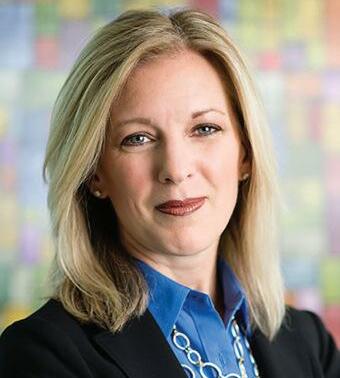
Office
Managing Partner,
ey
May 10, 2019 | 8:00aM - 11:00aM | radisson Blu Chicago
Register today at www icpas org/women
www icpas org/insight | SPRING 2019 31
Tim Jipping, CPA, CGMA Owner, Journey Advisors & CPAs tim@journeycpas com
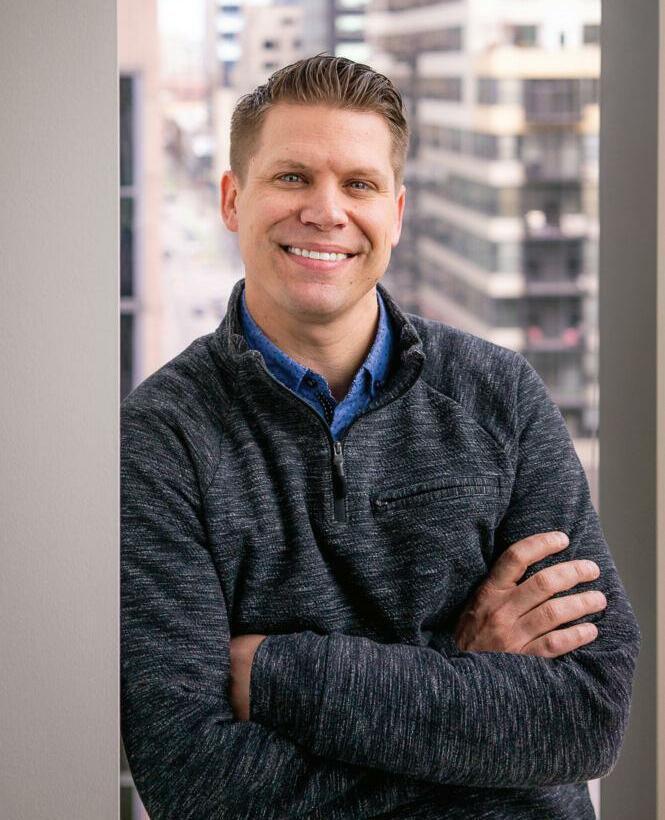
Calling All (Emerging) Leaders: What Got Us Here Won’t Get Us There
Diversity and inclusion are victims of the CPA profession’s legacy business model. Will you work to make change?
For the better part of two decades, the spotlight on the striking absence of meaningful diversity and inclusion in the CPA profession has been growing brighter But despite increasing awareness and not-so-subtle public shaming, perhaps not even Detective Holmes could uncover evidence of progress over that time We continually see firms boast of modest gains or distort their dismal results by emphasizing levels of effort But I’m not impressed
If you ’ re offended, well, good Maybe you should be As a profession, we ’ ve been content with simply creating a perception of diversity and inclusion and touting our input over output (which happens to be our trademark) Certainly, having a program, task force, or mandatory annual training dedicated to the sensitive and important issues surrounding diversity and inclusion aren’t bad ideas, but when only 22 percent of CPA firm partners are women and only 6 percent of partners at the Top 10 accounting firms which arguably have the most resources and “initiatives” are Black, Asian, and minority ethnic, how effective are these efforts?
I’d go so far as to argue that aside from aiding marketing and recruiting campaigns and contributing to being named to “Top Firms for [insert buzzword here]” lists, most of these initiatives are effectively dead on arrival The problem is not with the programs themselves or even the intentions behind them; rather, the problem is with our firms and, more specifically, the legacy business model of the CPA profession It’s not even that the model’s essence is good or bad heck, it positioned us as some of the most trusted business advisors but it’s simply not suited for the future of our profession, or the future of our society
Here’s how I see the traditional CPA firm model harming our diversity and inclusion initiatives:
• Scarcity mentality – We tend to incentivize and reward “ more ” over better This creates competition and insecurity, which drive greed, resulting in a race to the bottom And when we devalue our or someone else’s worth/work and compound it with greed, we spur overload If you ’ ve read the INSIGHT Special Feature, “The Culture Conflicts,” you know what happens next not at all appealing to the audience of talent we ’ re hoping to attract
• Survival of the fittest – Translation: If you aren’t beaten down and burned out to the point of submission, you haven’t been sufficiently hazed in preparation for the big leagues i e , the partner or C-suite levels And if you want more balance, you ’ re considered weak, uncommitted, or undriven No one desires to be perceived as weak in their personal or professional lives And if we ’ re honest, our society has traditionally emphasized and bid up the value of toughness exhibited by men, not women Hence the retention and succession issues we so commonly suffer from and complain about
• Cannibalism – The ones who can affect the most change now believe they have to set aside their own self-interests to do so And since so many current firm partners and leaders are afflicted with the same legacy disease passed down from generation to generation, it’s practically impossible for them to break rank and take the critical steps necessary to make meaningful progress toward a future different from what they’ve known Even those determined to make change often have many “zero-sum-minded” constituents, aka their fellow partners, to whom they must answer
32 INSIGHT | www icpas org/insight
ICPAS member since 2012 F I R M J O U R N E Y NAVIGATING THE ACCOUNTING AND CONSULTING LANDSCAPE
How long will we let this go on? Oscar Wilde declared more than a century ago that “discontent is the first step toward progress ” If we as a profession truly believed there was a clear benefit to diversity and inclusion, shouldn’t we be seeing more meaningful results? This profession is filled with so many talented professionals and problemsolvers from four very different generations now; it seems to me that the profession simply hasn’t deemed diversity and inclusion important enough by those who can affect the most change
Perhaps most only believe in diversity and inclusion as the “right thing to do” rather than a tangible and realizable business benefit (Hint: Numerous studies document better business performance thanks to diversity and inclusion ) Besides, if you can prepare a tax return or financial statement correctly, what does it matter if you look the same or different than everybody else? [That’s sarcasm ]
Quality work knows no gender, race, or ethnicity But perspective does Perspective and diversity of thought is what leads to new ideas and creativity, innovation, and progress Diverse perspectives, when given and received genuinely, have always been an X-factor for long-term business success and is the antidote for the echo chambers that exist in so many firms today
Some may call me naïve in thinking that our legacy business model is the problem But I’d argue it is perhaps the most sensible explanation for some of the difficulties the profession has had in making progress, not only on the topics of diversity and inclusion
Let’s face it, we can’t expect a business model that’s purposefully designed to force people out at certain career stages to be the same model that promotes inclusion When the thing that limits progress is the thing itself, then you have happened upon one of the finest forms of riddles And as with all worthy problem-solving
efforts, I think Mr Einstein said it best: “We cannot solve our problems with the same thinking we used when we created them ” Ironically, this is perhaps the best business case for why diversity of thought is so necessary in the first place
The traditional firm model needs a makeover to capitalize on current business opportunities, and to embrace the disruption within the profession that will continue to exist for the foreseeable future There is no single right course of action to accomplish this But I believe our best hope rests with the profession’s emerging leaders give them a voice and a seat at the table
So, I’ll leave you with a final few crazy ideas and my plea to the standing and emerging leaders in our profession:
• Remain firm in your belief of the business benefits driven by diversity and inclusion and surround yourself with people who believe in diversity and inclusion as an underlying principle
• Don’t fall into the trap of believing that diversity is the highest virtue of all; this breeds entitlement, and you’ll find little success using entitlement to overcome entitlement
• Be an original thinker; do not be afraid to challenge unspoken assumptions or the status quo
• Take risks, stand out, and look different (this might mean talking with your feet) Be you
• Start or join new firms committed to reshaping the landscape of the profession

Let’s get serious about the lack of diversity and inclusion in our profession Or don’t Our increasingly diverse and socially conscious free market will certainly decide which firms have a future

Your voice is cr itical

State legislators want to hear from YOU on important issues, not only as a constituent, but also as a CPA. Your exper tise brings clarity and credibility to issues



Being heard is easy
We have brought grassroots advocacy literally to your finger tips When there is an issue we need you to contact your legislator on, we will send a LEGISLATIVE ALERT email
By clicking on the TAKE ACTION button in the email, you will automatically connect directly with your respective legislator where you can then CALL, send an EMAIL, or post a T WEET.
Questions: Please contact Mar tin Green, Esq , Vice President, ICPAS Government Relations at greenm@icpas org

www icpas org/insight | SPRING 2019 33
TakeAction! call
| email | tweet
Do the Numbers Speak for Themselves?
Finance has a crucial voice in every business Here’s how to make sure you ’ re being heard
I didn’t land in Boeing’s International Finance and Consolidations and Corporate Systems departments on skill alone I didn’t help my consulting clients excel by showing them how to simply improve their finance functions while I was with Accenture I didn’t advance from general accounting to international finance and reporting roles at IRI and Hospira by only making sure the numbers were compliant Earning a seat at the leadership table takes more than knowing the numbers, it takes knowing how the numbers bring value to your organization and being able to communicate it to your audience
Whether you ’ re early in your career or already many years experienced, as a corporate finance professional, you ’ re going to be sought to provide expertise and guidance by corporate leaders, peers, shareholders, and maybe even the public The way you present the numbers, and the way you communicate your expertise, will ultimately determine if and when you earn a seat and a voice at the leadership table In my experience, developing these traits, behaviors, and approaches will help you be the one who’s consistently called on to provide the much-needed financial expertise your organization needs to succeed
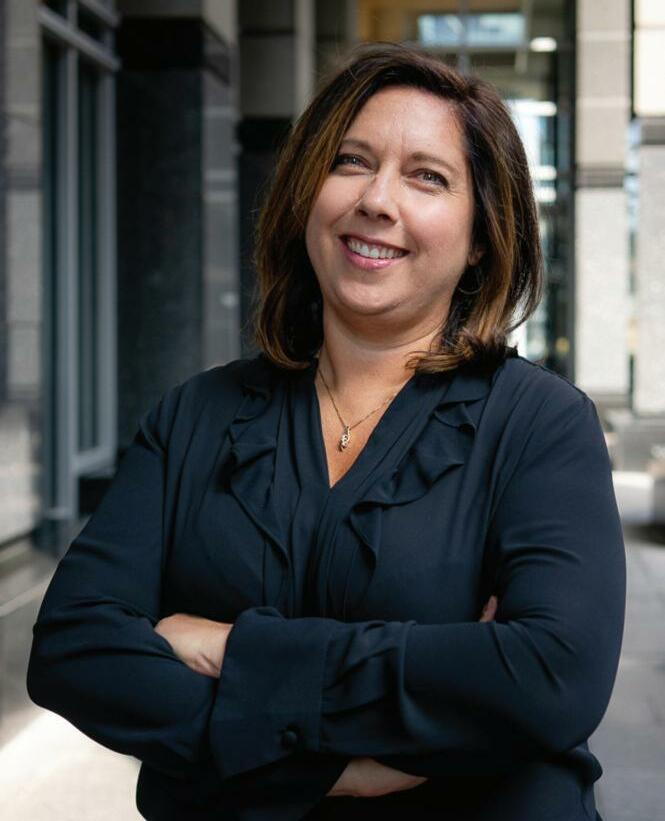
Provide Value to Your Audience
A key component of earning a seat at the table is being able to provide value Is your audience looking for confirmation that a proposed path does not have any unanticipated financial pitfalls? Are they looking for more financially sound alternatives? What exactly is your audience looking for? Identifying this ahead of time allows you to prepare the type of data and presentation that delivers the information your audience is actually looking for and values most in their decision making By helping your audience achieve its goals, you’ll help yourself get a call back to the table
Know Your Audience
Does your audience lose attention as details are provided, or does providing concrete examples exhibit competency to them? Are you in a group of other technical professionals where citations are important, or is this an audience that needs you to explain technical accounting matters in very non-technical language? How well others can absorb the information you provide determines if they will repeatedly seek you out for guidance Being able to adapt your approach and communication style to meet your audience’s skills and strengths is essential to them being able to assess, absorb, and act on your guidance
Learn by Example
Recognize that looking to others who have already been distinguished for their skills can be beneficial to you What traits do those go-to people possess? Are there certain areas of competency that appear more valued? Are there certain communication traits that they
34 INSIGHT | www icpas org/insight
C O R P O R A T E C A L L I N G STRATEGIES FOR CORPORATE FINANCE SUCCESS
ICPAS member since 1992
Tina Golsch, CPA, MBA Enterprise Finance Services, Boeing christina golsch@boeing com
have in common? Are they providing innovative ideas, or is it more that they are providing solid, tried-and-true advice? At any point in your career you can learn from others that hold the influence or position you seek
Expand Your Expertise
Every organization has subject matter experts; tap into them Even though you have deep knowledge in certain areas, it is always beneficial to gain knowledge in the organization’s other businesscritical areas I also encourage you to learn which areas your organization needs more knowledge in, and to tap into the tools and techniques being used to develop proficiency in that subject matter
Own Your Area of Expertise
Recognize that those who are perceived as go-to people are not the go-to people for everything In other words, you cannot be all things to all people There are specific areas of expertise they are being sought after and in which you will be sought after In which areas do people reach out to you for your guidance and advice? Master them
Your aim should be to be recognized for your expertise inside and outside of your organization You should also look to grow your professional network so that you can refer to other subject matter experts When people recognize that you can point them toward people that provide valuable guidance, they are more likely to trust the guidance that you provide Further, experts you refer others to are more likely to reciprocate and direct others to you when seeking information on your specific areas of expertise
Know the Problem
Generally, if a group of professionals are being gathered to discuss a problem it is unlikely an easily identifiable solution to that problem exists As part of that gathering, being able to understand and define the actual problem that people are trying to solve is key Complementary to understanding what will provide value to your audience, being able to identify and define the root cause of the issue at hand will help you provide meaning as solutions are sought and documented
Be an Active Participant
In the classroom, a professor calls on students who raise their hands to answer questions In the business world, there is no going around the room looking for people who have their hands raised There is an expectation that if you have specific knowledge or expertise that you will provide it without prompting or being specifically called upon Providing that knowledge and expertise is your job, it is welcomed, and it makes it more likely that people will look to you in the future
Request Feedback

We often receive surveys requesting feedback on services provided Why not do the same? Do you know which areas your colleagues believe you to have expertise? Do they perceive you as providing value? Are there specific areas of knowledge more sought after? Welcome that feedback, even if it does not agree with your perceptions or opinions, because it can help you define which areas you can build upon to enhance your expertise, influence, and recognition
My closing tip for you is to recognize that earning a seat at the leadership table and becoming an influential, go-to person in your organization is all part of a journey that unfolds over time You cannot rush or force expertise, trust, or recognition In fact, nothing you do can truly guarantee you a seat at the leadership table You can, however, proactively develop your expertise and your skills in communicating that expertise, so that if you do get an invite to the leadership table, you will have a voice that is heard at the table
9.20.1 9 A

Register your volunteer activity plans at www.icpas.org/CPADayofSer vice
Receive a free CPA Day of Ser vice t-shir t (while supplies last, free to ICPAS members)
Volunteer as an individual, or get a g roup toget her and volunteer as a team.
You can choose ANY volunteer activity you like See our website www.icpas.org/CPADayofSer vice for ideas
Questions? Please cont act Eric Scott at scotte@icpas.org or 800.993.0407, x7653.
www icpas org/insight | SPRING 2019 35
Good Day
Good!
par t of t he Illinois CPA Society’s 1 0TH
’s as easy as 1
2
3 :
for Doing
Be
annual CPA Day of Ser vice. It
-
-
Choose a community organization or charity to help
Jon Lokhorst, CPA, ACC Executive Leadership Coach, Lokhorst Consulting jon@lokhorstconsulting com

What Does Leadership Mean to You?
How you define leadership and what it means in your career could be a key factor in whether you ever get a seat at the table.
I often open leadership training and facilitation experiences with the question, “What is leadership?”
Some participants respond with skills or behaviors, like inspiring and motivating people
Others ascribe vision, strategic planning, and goal-setting to leadership Finding talent, developing people, and building future leaders are also sometimes mentioned
Other participants offer traits or attributes such as integrity, reliability, and setting a good example Fairness, kindness, and approachability are often mentioned, along with positivity, optimism, and energy Some bring up qualities like intelligence and business savvy
Occasionally someone defines leadership as a position, title, or role in an organization I’ll caution that describing leadership as an official capacity can result in a skewed understanding of what it means to be a leader And, by the way, people who equate leadership to a position typically make the worst leaders or don’t get invited to the leadership table in the first place
In “The 21 Irrefutable Laws of Leadership,” best-selling author John Maxwell offers a simple, one-word definition of leadership: “Leadership is influence ” I also like the way leadership author, speaker, coach, and psychologist Henry Cloud defines leadership He says, “Leadership is the process of getting from here to there ” Cloud’s explanation creates a sense of movement and direction
As a visual paradigm during my coaching, I write “here” and “there” on opposite corners of a flip chart, whiteboard, or paper In the upper right corner, “there” represents the vision or goal The place labeled “here” in the lower left corner symbolizes the current state or starting point
This paradigm works at both a macro and micro level It can be used to describe the exercise of leadership on a big stage, like leading a movement, community, or organization It’s also useful to describe what it takes to lead a small project, task, or activity The paradigm is even helpful on an individual level when contemplating one ’ s personal vision But regardless of scale, the best leaders master the two Rs of leadership when trying to move from here to there: achieving results and building relationships
Achieving results is a common driver of accounting and finance professionals While leaders who are heavily results-oriented are likely to get “there,” they also run the risk of losing people along the way Their team may feel unappreciated for their efforts to reach the goal or they become frustrated at a lack of opportunity to provide input and feedback as decisions are made They tire from the high drive to achieve results This is costly from the standpoint that life and leadership consist of a series of “here to there” journeys If we burn our people out on the current journey (pretty common in the accounting and finance world), they aren’t likely to re-up for the next one Worse even, the typical leader has several “here to there” journeys going on simultaneously
36 INSIGHT | www icpas org/insight
L E A D E R S H I P M A T T E R S ENHANCING YOUR ABILITY TO LEAD
There are also downsides for leaders with too heavy of a relationship orientation People-pleasing tendencies get in the way of making tough decisions A lack of clarity ensues because clear direction may offend certain team members and disappoint others Collaboration is great, but over-collaboration stalls progress Team members feel heard and cared for but eventually become frustrated by a lack of progress
The reality is that few leaders are equally strong or balanced in the two Rs, while many aren’t aware of their strengths and strugg each area at all This creates gaps and blind spots in leadership style and potential Elevating one ’ s self-awarene their leadership style and behaviors can help achieve the el right mix of results and relationships behaviors, but aware alone is not always enough to earn an influential seat at the t
During a recent executive team retreat, one leader highlighte importance of initiative, which applies to both Rs of leade Initiative is both an attribute and behavior that helps you stan as a leader, and it’s one key to getting a seat at the leadership regardless of where you rank in your organization now
From a leadership perspective, I describe initiative like The leader goes first Don’t get me wrong; the leader first philosophy does not convey entitlement or privilege about anticipating, noticing, and serving the needs of your and organization What does that mean in practical terms? are 10 suggestions:
1 The leader goes first to remind others of the vision or before them (the place called “there”)
2. The leader goes first to navigate unresolved confli subordinate, peer, client, customer, and vendor relationsh
3. The leader goes first to connect with clients or custome ways the organization can better serve them
4 The leader goes first to suggest process improvements th make their department or organization more efficient
5. The leader goes first to care for team members who are struggling with personal concerns or challenges
6. The leader goes first to volunteer for special projects that will move their team or department forward
7 The leader goes first to confront a team member who engages in negative behaviors detrimental to the team
8 The leader goes first to support and execute on organizationwide change initiatives critical to the enterprise’s success
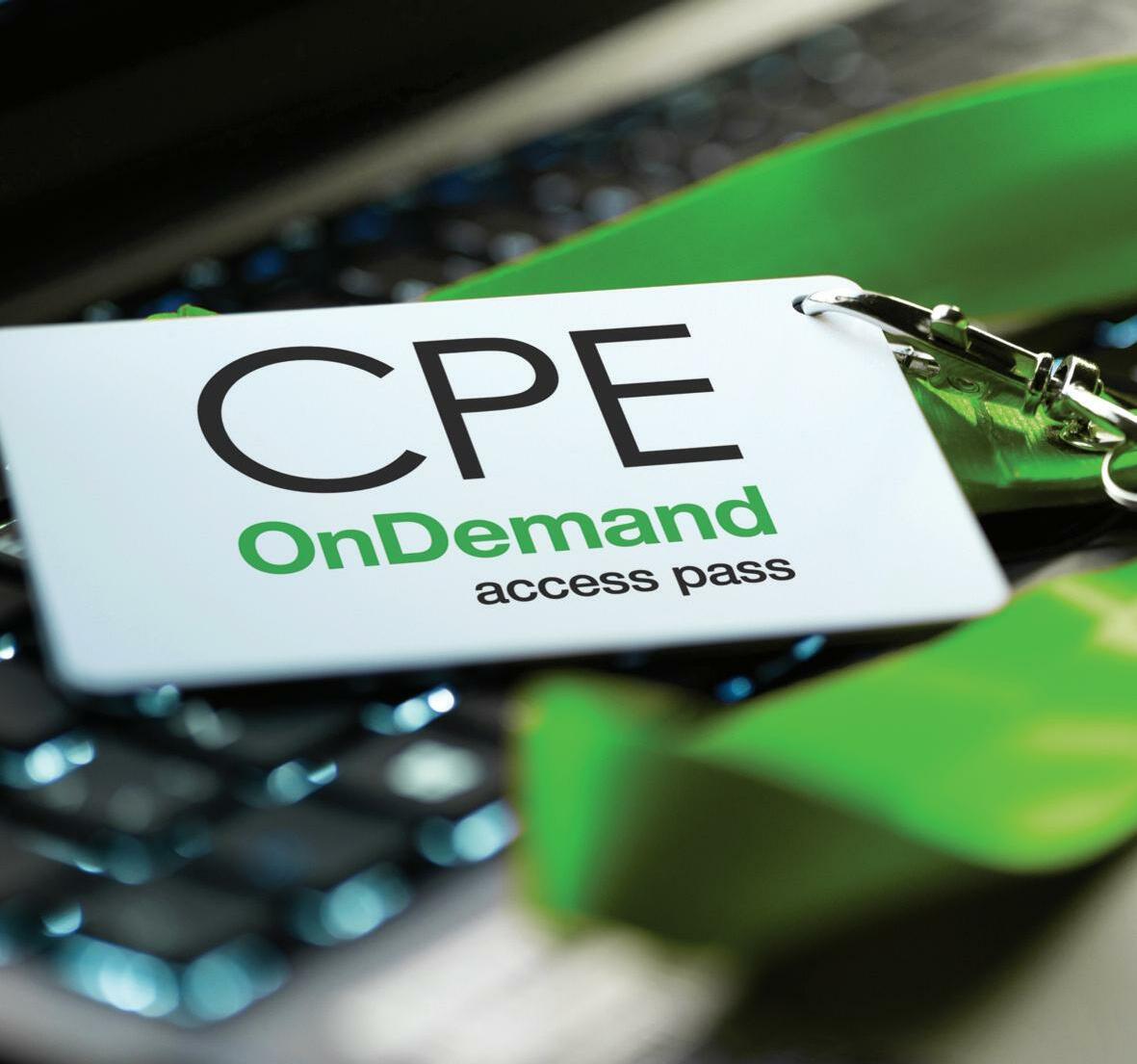
9. The leader goes first when seeing that the boss is overwhelmed and needs support or someone to take on tasks
10 The leader goes first to delegate assignments that will help someone on the team learn new skills and grow professionally
Even if the above scenarios don’t quite play out for you in your role now, you can still apply the leader goes first concept in your workday To start, build it into your mindset by asking yourself this simple question as you start each work day: “How can I show initiative today?” Then, seek out ways and opportunities to take initiative, and keep a watchful eye for scenarios like the ones described above
Ultimately, my challenge to you is to stretch yourself, get out of your comfort zone, and take a risk When you become a person of initiative, you had better get ready for your invitation to take a seat at the leadership table
www icpas org/insight | SPRING 2019 37
40 Hour s of CPE f or onl y $199! hottest topics delivered in a fun and engaging format! FRESH CONTENT ADDED REGUL ARLY! www.icpas.org/accesspass Subscription good through September 30, 2019 Expanded catalog of more than 100 courses Animated case studies and interactive games Real world solutions from leading exper ts
Art Kuesel President, Kuesel Consulting art@kueselconsulting com

How to Spruce Up Your CPA Firm’s Organic Growth
Springtime is the right time to start planting the seeds for healthy top-line growth.
Organic growth: the low cost, low risk answer for increasing internal output and sales and future firm expansion Every firm wants it, but few truly achieve it Why? Because the typical CPA firm today commonly looks at the same several sources for achieving internal growth goals: rate increases, cross-selling services, prospecting new clients, and possibly recruiting some experienced talent But what if I told you that these efforts would never yield the organic growth results you want or need?
Well, they won’t According to recent benchmarking statistics, the average growth from these sources is just over 5 percent per year While 5 percent annual growth seems admirable at the surface, in today’s environment, it’s barely enough to preserve your profit margins when accounting for staff raises, competitive PTO packages, and ever-growing investments in technology
So, if the roots of your organic growth goals just aren’t holding up, it’s time to plant some new seeds to shore things up Luckily, there are, in fact, several proven strategies for you to consider:
1 Optimize current partner business development efforts
2. Focus a partner on full-time business development
3. Convert a young professional to a full-time business development role
4 Hire an outside business development professional
5. Develop a business development culture
Yes, that is a lot of focus on business development, but keep in mind these strategies are coming from me, a business development coach and trainer, and your new INSIGHT columnist on the subject So, let’s dive into these highly adaptable strategies a bit more
Strategy 1: Optimize current partner business development efforts
It’s common for a firm to require a minimum of $50,000 of new revenue per partner per year (if not more) Achieving this can usually only be accomplished with some type of support for each partner and a way of holding them accountable to the firm’s goals I generally suggest that firms invest in business development training or coaching for their partners and enhance partner accountability through a quarterly check-in meeting and ongoing pipeline reporting Ideally, partners will continually learn and implement new business development strategies while developing a deeper understanding of if and how their strategies are paying off
38 INSIGHT | www icpas org/insight
P R A C T I C E P E R S P E C T I V E S MOVING YOUR FIRM FORWARD
Strategy 2: Focus a partner on full-time business development

If your firm has a partner already generating $200,000 or more per year, imagine what he or she can do with several hundred more hours dedicated to business development Could that figure double or even triple in a matter of years? The answer is “ yes ” If your firm has partners that are particularly successful at business development, I suggest reducing their client responsibilities, so they have more time to generate new business for the firm Not unlike the partner optimization strategy above, the firm should invest in appropriate development and accountability initiatives to ensure the firm’s goals are achieved
Strategy 3: Convert a young professional to a full-time business development role

This strategy is potentially two-fold it can achieve both your organic growth and succession planning goals
What you’ll want to do is identify a manager-level candidate within your firm who already has great relationships with clients, fellow employees, leadership, and in the community or profession Ideally, the candidate will have already begun bringing in new business Then, give this young professional significantly more time and training for business development I suggest you reduce this candidate’s billable hour requirement and assign a revenue goal A minimum revenue goal of $75,000 is a good starting point and should grow to $250,000 or more within a few years If the candidate succeeds, you also found yourself a partner prospect
Strategy 4: Hire an outside business development professional
Often, this is the first strategy considered because we are painfully aware that most other professions and industries employ
salespeople Whether this takes the form of someone who develops leads for you as a contractor, or a consulting firm with a lead generation strategy, or even hiring a full-time business development professional in-house, there are many ways to approach this strategy In any case, this person will need to be hyper-focused on developing relationships with prospective clients and managing a strong pipeline of opportunities Generally, this person will need to generate $400,000 or more per year to be a profitable investment for your firm I will caution you that it can be extremely hard to find the right person who will be successful in this role and fit in at your firm In fact, many firms make several attempts at this strategy before getting it right
Strategy 5: Develop a business development culture
What if business development was everyone ’ s responsibility? That’s the principle behind this strategy Everyone, from the interns to the managing partners, should be intentional about growth This usually requires firmwide training on what constitutes effective business development at each level and setting goals for activities across all levels The core of this effort revolves around the fact that developing better and more meaningful client relationships can be a significant source of client growth and every person in the firm has the potential to engage in this manner
While there are certainly other strategies for boosting organic growth, like developing new service lines and bringing on lateral talent, the ideas highlighted here are often considered “low hanging fruit ” Whether you try one strategy or all of them, springtime is a great time to plant the seeds for short- and longterm organic growth
CPE TRACKER
Keep all your CPE credits in one or g anized and easy to manag e place!
The CPE Tracker allows you to see a list of all completed CPE programs from ICPAS and add those you’ve com pleted from any third-par ty (non-ICPAS) provider s
www icpas org/insight | SPRING 2019 39
STAY ORG ANIZED!
A benefit of your Illinois CPA Society member ship
Mark J. Gilbert, CPA/PFS, MBA Principal, Reason Financial Advisors
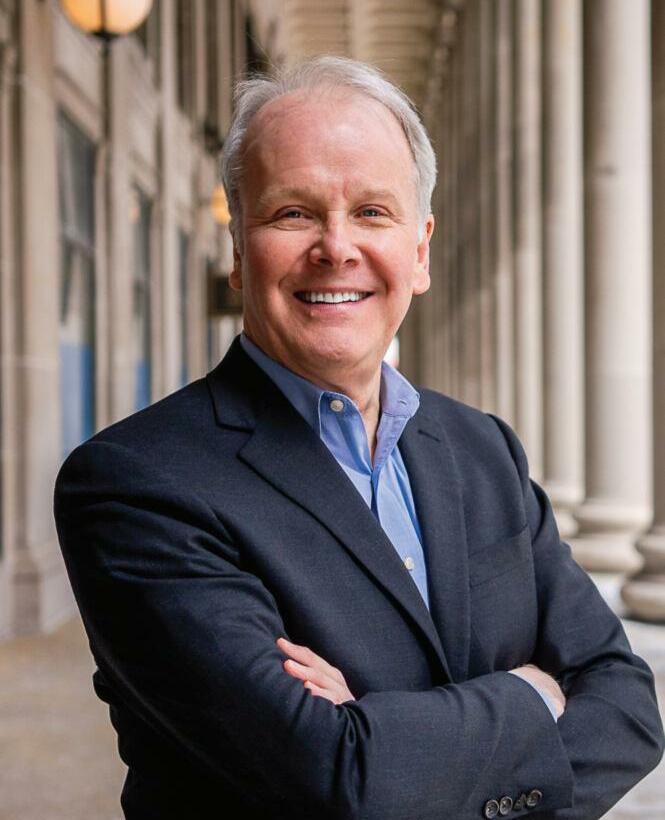
7 Ways to Spring Clean Your Personal Finances
We all know we should regularly perform a mix of cardiovascular and muscular strength exercises to maintain our health But does that mean we don’t hire personal trainers? No Many of us still must hire trainers to encourage (or force) us to do these things despite knowing it’s for our own good Of course, a good personal trainer will also design a physical fitness plan customized for you and correct your technique in performing the prescribed exercises when necessary Nevertheless, I contend that the most important role of the trainer is to root you on, pushing you to complete the workout that you already know you should be doing
As a personal financial planner, I sometimes feel like a personal trainer I design and develop personal financial plans that are appropriate for each client, and I correct their technique by identifying the things they should not be doing and replacing them with my recommendations for the steps they should be taking to improve their chances of financial success But, largely, I encourage them to do the things they already know they should be doing, like saving and investing, to improve their financial lives
None of these concepts are revolutionary; you ’ ve likely heard most or all of them before Nevertheless, sometimes it’s good to hear them again, perhaps presented somewhat differently, to push you into action And since it’s spring, you might think of these ideas as some “spring cleaning” for your personal finances
1 Set aside an emergency fund The first step in improving your personal finances is making sure you have an adequate reserve to meet unforeseen expenses and emergencies How much is enough? The rule of thumb of six-to-nine months of living expenses is a good first cut, but I recommend you look at your employment situation If you were laid off or terminated by your employer, how many months would it take to find a new job? Multiply that number by your average monthly expense amount and you’ll have a pretty good estimate of an appropriate emergency fund balance to maintain
2. Pay down and pay off debt. Once you ’ ve set aside your emergency fund, tackle the debt that acts like a financial noose around your neck excess credit card balances, student loans, car loans, mortgages, any consumer debt you may have If you have multiple outstanding debts and loans, try paying off the smallest debts first you’ll find it will motivate you to pay down the bigger loans Depending on the balances and loan lengths, you may also want to consider tackling the debts with the highest interest rates first The quicker you bring down these debts, the less interest you pay and the more money you save, which could make a substantial difference in your ability to pay down other debts or save and invest later
3 Get adequately insured As a fee-only financial planner, I am never paid by an insurance company to promote their products Yet, I strongly recommend that clients have all their bases covered by purchasing appropriate amounts of coverage, whether that be for medical, life, long-term disability, long-term care, auto, renter’s or homeowner’s, or other relevant insurance coverages Why? Insurance serves to provide people with the
40 INSIGHT | www icpas org/insight
F I N A N C I A L L Y S P E A K I N G BEST PRACTICES IN FINANCIAL PLANNING
It’s time to dust off your old money ideas and get your financial house in order
ICPAS member since 1982
mgilbert@reasonfinancial com
financial resources to pay for major damages that occur to them and their loved ones, or their property, which they cannot easily cover on their own I also strongly advocate for appropriate long-term disability coverage for income earners as there’s a greater likelihood of becoming disabled than of dying throughout the duration of the average worker’s career And I believe that some form of long-term care insurance is appropriate for most people for whom neither Medicaid nor self-financing of elder care is realistic
4. Save for your retirement. The best way to build your retirement savings is to automate it by having a portion of your salary automatically deposited into your employer-sponsored 401(k), 403(b), or 457 plan account If the tax-deferred or tax-free growth on the income and appreciation of the funds in these accounts isn’t incentive enough, don’t forget that your employer might match your retirement account contribution If so, this is free money that should never be turned down Now, if you happen to be ineligible to participate in a plan like this, or your employer does not offer one, then an individual traditional IRA or Roth IRA is likely to be the next best bet for you Younger professionals and those who expect to be in higher income tax brackets later in life should seriously consider using the Roth option in their employer plan if available or establishing a personal Roth IRA first
5 Give to your favorite charities Unless you ’ re donating enough for a tax break, this won’t exactly help your financial status That said, I believe we have an ethical obligation to help those less fortunate than us, so I encourage my clients to give financial and other gifts to well-run charitable organizations and causes they care about
6. Set aside savings for a goal. Everyone has long term goals in addition to having a financially sound retirement It might be saving for a home, college for children or grandchildren, or a bucket list vacation Whatever the case may be, more than likely you’ll need to spend several years saving and investing to make that goal a reality So, if there’s something important to you that’s going to require a large sum of money, start setting aside funds specifically to meet that goal or goals now (or at least as early as you can afford to) How much and how soon you’ll need this money will determine the savings and investment vehicles it should be held in
7. Invest appropriately for your financial position. There is a world of investments available to (hopefully) make your money grow and meet your financial goals It is important to understand the significance of the timing of your goals when selecting the appropriate investments Whenever possible, I recommend that stocks be used to largely fund goals that are five or more years into the future Investment-grade bonds can be used to fund goals that are one-to-five years into the future And cash and short-term government bonds should be used for goals with less than a one-year time frame The general concept is that the sooner you need your money, the less risk you can take with it There are other factors to consider as well, including your investment risk tolerance and the resources you have available to meet your goals, which may alter these decisions that’s what a good personal financial planner will help you figure out
As with cleaning the winter cobwebs out of your residence, spring is a great time to dust off these old money ideas and put them in place in a shiny new personal financial plan maybe you can even use your tax refund to spruce up your savings
I’m looking for a sample agreed upon procedures engagement letter
Does anyone use a secure email option such as Sharefile or Leapfile?
Any NFP member s available to discuss indirect cost r ates?
Consider ations for t aking on a medical marijuana business as a client?
What is considered adver tising for UBIT purposes?
Can I issue a W-2 for a caregiver without an EIN?
Does Illinois t ax non-qualified annuity benefits?
Sometimes, your best resource is another ICPAS member. Join other members using ICPAS CONNECT to ask a question, get a second opinion, share a resource or par ticipate in a discussion
www icpas org/insight | SPRING 2019 41
Elizabeth Pittelkow Kittner CPA, CGMA, CITP, DTM Controller, Litera Microsystems ethicscpa@gmail com
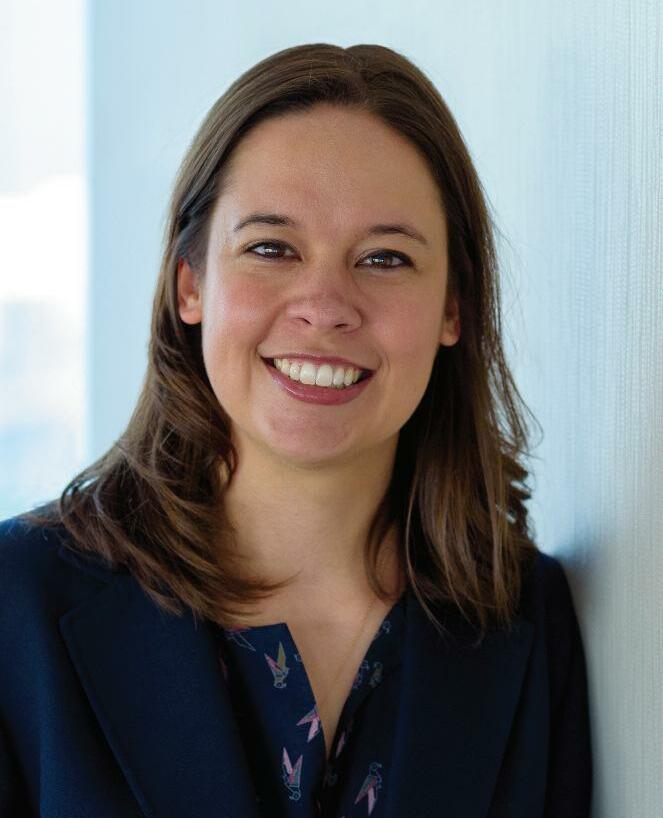
How to Elevate Ethics in Accounting and Finance
Young
When you start a new job at a new organization, or change departments within your current company, your instinctual response to want to fit into the group takes over This reaction is evolutionary, and it is rooted in our yearning to survive and flourish Young professionals and new recruits are especially susceptible to wanting to fit in because of their desires to make good impressions on employers at the start of their careers
While college curriculums are increasingly exposing students to more ethics education, young professionals still largely figure out the application of business ethics while on the job Instead of trying to fit in, young professionals need to be encouraged and feel empowered to ask questions with confidence and without fear when something looks unfamiliar to them The accounting and finance profession is based on integrity, and we need to work together toward creating and maintaining healthy work environments, regardless of rank or tenure
So, here are some tips for both young professionals and their employers on how to elevate ethics in the accounting and finance profession
If you are a young professional, here is some advice for you:
1 Know who you are and what you stand for personally If you find yourself caught up in something questionable or unethical early in your career, it can damage your reputation and stay with you for decades Be careful not to become a scapegoat for others’ behavior who may try to shift blame to you Being young or less experienced are not excuses for acting unethically
2. Determine who you can talk to in the company when something does not feel right Perhaps it is a colleague or someone from HR Find out if there is an anonymous way to provide feedback and use it if necessary Find someone outside of the company you can talk to, as well
3. Enter into mentoring relationships Mentorship programs and groups exist through organizations like the AICPA, Illinois CPA Society, and other state CPA societies and professional organizations Many of these programs include structured mentoring with non-disclosure agreements
4. Ask questions! In the fledgling part of your career, you are learning how to do your job well, and you should develop a habit of seeking to understand why you are asked to complete a task and how it fits in to the overall goals of the company If you do not like a reason, consider if you should be doing it For example, perhaps your colleague asks
42 INSIGHT | www icpas org/insight
E T H I C S E N G A G E D EXPLORING ETHICS IN BUSINESS & FINANCE TODAY
professionals and their employers have a responsibility to set a high bar for ethical behavior
ICPAS
member since 2005
you to book a journal entry without giving you an explanation Why do you feel uncomfortable? You do not know the reason for the journal entry and find it suspicious; your reputation is on the line Talk to people about the situation that bothers you, and do not do anything you are uncomfortable doing While this sentence sounds easy, it is arduous in practice Your colleague may be telling you to book a journal entry without giving you a reason because that colleague is rushed However, it could also be because that colleague is hiding something You will not know until you review evidence or do some research
5 Learn more about business ethics Take classes, read articles, and talk to colleagues The more you can learn about the types of ethical dilemmas that exist, the better equipped you will be to deal with them The AICPA’s Code of Conduct is an excellent resource for you
If you are an employer of young professionals, please consider the following to help promote an ethical environment:
1. Talk about ethics in your new hire training and then reinforce your focus on ethics in ongoing company meetings with your teams Enforce a zero-tolerance policy for people who cheat the company and impose disciplinary actions upon people who disrespect others Train managers about ethics and open the dialogue for what is appropriate versus not appropriate around policies and behaviors
2 Provide anonymous ways for people to report when they feel something is not right, and then ensure you address feedback either in a company meeting or with a response back to the person sent through a system where the responder does not see the person who reported it
3. Consider providing mentors to your new hires to offer another outlet for decision-making discussions Encourage your young professionals to be involved in mentoring outside of the organization, too, because it will give them more diverse perspectives and other opportunities to discuss the issues they may face Ensure that outside mentorship occurs with nondisclosure agreements
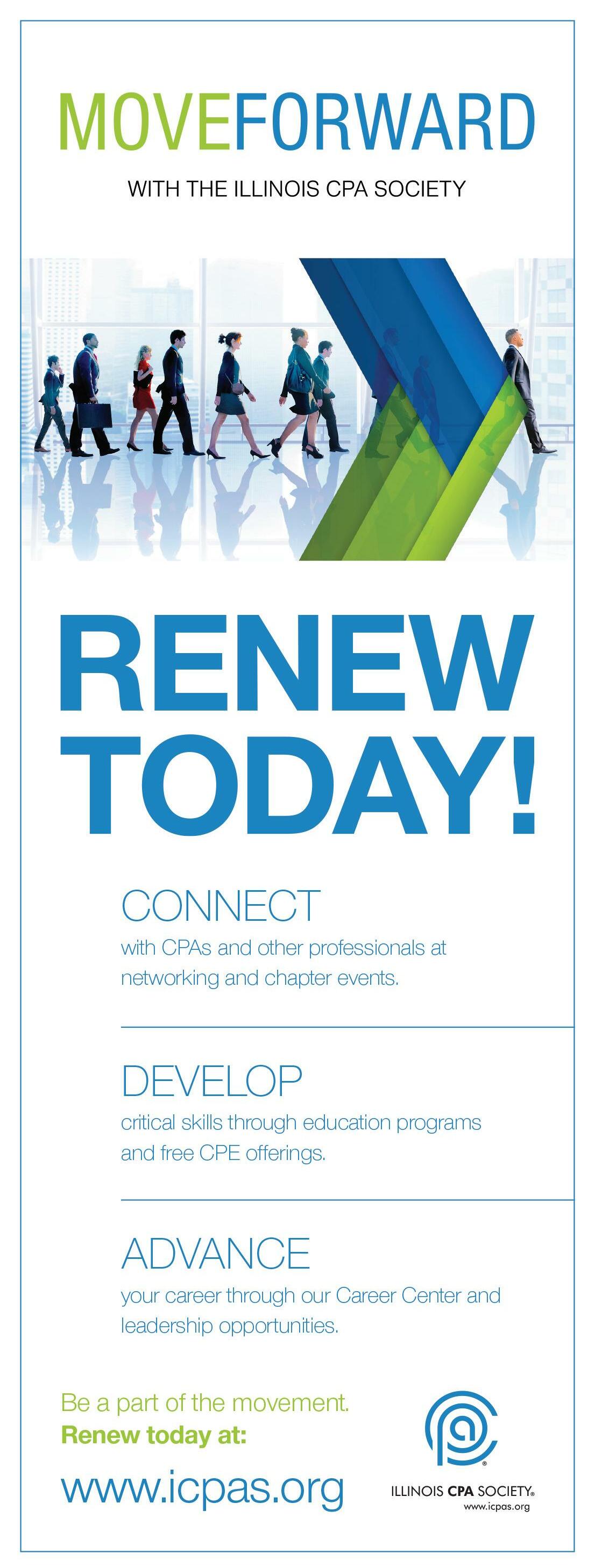
4. Explain to your employees the rationale for what they are doing and how their work impacts the company When people understand the why of what they do, they do their jobs better When people hear explanations such as, “I do not care how you do it, just get it done” or “It is just the way things are done here,” they question the integrity of what they are doing
5. Create an environment where it is okay to be wrong if intentions are not wrong When people feel they cannot ever fail at anything in a role, they are more likely to act unethically to “get it done” or cover it up than to admit their mistakes, learn from them, and move on to more productive behaviors
Consumers in our increasingly socially conscious marketplace, as well as young professionals entering the workforce, are demanding more integrity from the companies they work for and support This mindset should be incentive enough for organizations to be more mindful of their ethical practices and more transparent with their operations As protectors of the public good, CPAs and other accounting and finance professionals are in a unique position to drive companies toward establishing better environments for integrity
www icpas org/insight | SPRING 2019 43
Keith Staats, JD Executive Director, Illinois Chamber of Commerce Tax Institute kstaats@ilchamber org
Illinois Eyes Corporate Income Again

Legislation circling in Springfield is looking for the “best” way to tax the income of multinational corporations
Supporters of proposed Illinois legislation HB 2085 and SB 1115 allege certain corporations are guilty of stashing vast sums of income outside of the country In their view, these multinational businesses are avoiding paying their fair share of income taxes to the detriment of Illinois and its taxpayers To “fix” this perceived problem, the proposed legislation would modify how corporations compute their Illinois income
The proponents of this legislation are sincere but misguided The fixes proposed, in my estimation, are bad policy, largely duplicative of legislation enacted long ago, and are based on faulty assumptions about the amounts of income on which taxes are being avoided To understand both sides of this issue, we need to decode how Illinois laws and regulations divide the income of multistate and multinational corporations
Illinois begins with federal taxable income, subject to certain Illinois modifications, as the starting point for computing a corporation’s Illinois tax liability Then, the federal taxable income of a corporation conducting business in multiple states is divided among each of the states in which business is conducted to derive the income subject to Illinois income taxation Illinois, like the majority of states, divides the income of corporations operating in multiple states by using “formulary apportionment ” In Illinois’ case, this means income is apportioned to Illinois by comparing sales in Illinois to sales “everywhere ”
Adding another layer of complexity, Illinois, like many other states, doesn’t tax the income of each related corporation in isolation at the entity level If a corporation is a member of a group of related corporations a “unitary business group ” in Illinois Income Tax Act (IITA) parlance Illinois treats that group as a single taxpayer Illinois requires a group of related corporations that are a unitary business group to file a single combined return mandatory combination
These requirements were included in the IITA many years ago to prevent corporations from avoiding Illinois income taxes by shifting income to related corporations located outside of Illinois and beyond the reach of Illinois tax law, while shifting deductible expenses to corporations subject to Illinois income taxation For example, Nevada-based Corporation
A loans money to Illinois-based Corporation B at a market rate of interest The interest expense from this inter-company loan cannot be deducted by Corporation B because Illinois treats Corporation A and Corporation B as one taxpayer you can’t deduct the interest of a loan to yourself
Now, let’s add another layer of complexity What happens if you have a group of related corporations and some of those corporations are located outside of the U S ? Illinois, like most other states, is what is known as a “water’s edge” state Illinois only includes foreignbased corporations in the unitary business group and combined Illinois income tax return if the foreign-based corporations have a significant U S presence The unitary business
44 INSIGHT | www icpas org/insight
T A X D E C O D E D DECIPHERING TODAY’S STATE AND FEDERAL TAX LAWS
ICPAS member since 2001
group definition requires what is known as an 80/20 test to make this determination
To be a member of a unitary business group, a corporation must have at least 20 percent of its property and payroll located within the U S
This 80/20 rule provides a tax planning opportunity Take the loan example above but put Corporation A in Bermuda instead If Corporation A is in Bermuda and doesn’t meet the 80/20 test, Corporation A can’t be included in the unitary business group or combined income tax return and the interest expense to Corporation B won’t be eliminated You could do the same thing with intangible property such as patents and trademarks But Illinois shut down this tax planning opportunity more than 10 years ago when the IITA was amended to require companies to add back these types of federal deductions when calculating income subject to Illinois income taxation
Back to the currently proposed legislation
Its proponents assert that their bills are necessary to shut down the tax evasion tactics of corporations in so-called tax havens (Bermuda et al ) Apparently, the proponents don’t understand the IITA well enough to be aware of the addback provisions that already put an end to such tax avoidance schemes It isn’t necessary to switch to worldwide combination to combat income shifting because Illinois has already addressed the issue
My fear is HB 2085 and SB 1115 will radically change the IITA, adding unnecessary complexity while reducing the likelihood of international investment in the state A substantial increase in state revenues is simply unrealistic given our current tax laws What’s more, the issues with perceived tax havens were further mitigated at the national level with 2017’s federal tax reform legislation, the details of which go well beyond the space limitations of this column
These proposed bills would essentially change the IITA back to utilizing the flawed way of apportioning the income of multinational businesses on a worldwide combination basis that was thoroughly analyzed and addressed by a U S Treasury Department working group that consisted of federal and state government and business representatives and resulted in Illinois and most other states adopting water’s-edge legislation in 1984

Should Illinois’ legislators really be trying to reinstitute tax complications we cured more than 30 years ago?
6.7.1 9
8:00AM - 12:00PM THE METROPOLITAN Chicago, IL
FEATURED
Leon Logothetis

Global Adventurer, Motivational Speaker, and Author/Creator of the Book and Netflix show, The Kindness Diaries, and his new book, Go Be Kind
Turning Your Passion into Your Profession
Kim Szalkus, CPA
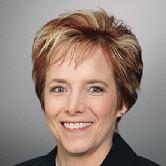
Vice President, Finance and Administration, Ronald McDonald House Charities of Chicagoland and Northwest Indiana
Careers in a Mission-Focused Organization
Jennifer Casteller, CPA Director of Accounting & Financial Reporting, The Obama Foundation
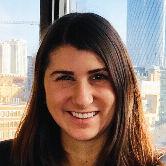
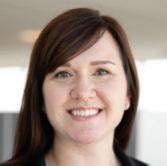
Anthony Fiore, CPA


Vice President of Finance and Controller, Feeding America
Ashley Nazarak
Vice President, Learning and Evaluation, YMCA of Metropolitan Chicago
Making a Local Impact
Daniel Cervantes
Vice President of Finance, Administration and Community Engagement, Skills for Chicagoland’s Future
www icpas org/insight | SPRING 2019 45 Register today @ www.icpas.org/yplc
See You: The Power of Human Connection
KEYNOTE I
A

Muhammad F A bbasi
Jason J A bbott
Margo K A braham
Matthew A brahamson
Paige A br y
R yan R A bshire
Drew D Achenbach
Ioan Adam
Babatunde A Adediran
T imothy W Adelman
Monika Adomaityte
Talha A Ahmed
Iyinogooluwa Ajayi
Kyle D Alden
Alexa N Alexander
Blake P Alexander
Michael G Alfirevic
Cody D W Allen
Michael Allen
Sarah Allen
Jonathon W Allison
Evan M Allsup
Mohamed Alraghib
A bigail J Ambrose
Ronak C Amin
Eli C Amstadter
Af ton V Anderson
Alex J Anderson
Alexis H Anderson
Eric J Anderson
Thomas Anderson
Angie Andriani
Glen Andrianov
Michael J Anzeljc
V incent F Arcari
Shane C Arhela
Anthony J Arito
Blake Arko
Lauren Arseneau
Andrew P Asch
Drew T Aschermann
Andrew L Asebrook
Mario Asencio
Andrew Asmari
Tsvetalina K Atanasova
Erika K Atkenson
John M Auden
Jennifer M Augustian
Nermin Avdic
Vanessa M Avila
Nicholas C Avino
Mark R Avramovich
Thomas J Ayers
Anan Azeem
Noor Azra B
Ibrahim Y Baamer
Nikita T Bactee
Jamie B Baer
Anna Bailey
Madison F Bailey
Jack Bainbridge
Emily Baker
John M Baker
Nishanth
Balasubramanian
Jacob O Balder
Alexander Balkan
Michael J Bannon
Gregor y E Bardoczi
R yan J Bardy
Kody J Barnes
Morgan Barnes
Zane M Barnes
Jacob C Baroncini
L uis S Barraza
Christian Barron
R yan Barr y
Brian Bar tasius
Margret F Bashirian
Tsenddulam Batochir
Rachel M Batshon
Hayden C Bauer
James J Bauer
R yan Bauer
Jef frey P Baumgar tner
Prima Nikkola O Bautista
Edward F Bava
Jade D Beadle
John Becker
Nicole A Becker
Jordan M Beckman
Leann A Beckman
Brian A Begrowicz
Taylor E Belcik
V ictoria H Belkin
Hannah Bellrichard
K atelyn Belter
Guillaume Bendanon
Paige Bendell
Sloan Bengtson
Brian M Benjamin
K atherine D Benson
Jessica D Bequette
Alice Berardi
Peter F Berardi
Justin S Berkson
Carlee Berland
Grif fin A Berland
Monarch Bhatt
Shivani Bhatt
Dongzhe Bi
Jacob A Bianchi
Austin R Bierman
Brian T Bilek
Samuel H Bima
Justin Birner
Br yan R Bishop
Maciej P Blajda
Weronika W
Blaszkiewicz
Steven R Blend
Scott A Blichar z
Michael Blinka
Rober t F Bloise
Paulina A Boblak
Nikolett Bogdan
Filip Bojanic
Brandon Boone
Scott R Borcher
Lisa E Boris
K atelyn J Bor van
Tyler J Bostedt
Michele L Bottomley
Blake Bougadis
Michelle Brady
W illiam J Brady
L uciana Brakha
Patrick Brankin
Riley Brannen
Brandi A Brent
Brianna K Brinckman
Kevin Brocious
V ishal M Broker
Corbin Brown
Nathan Brown
Scott M Brown
Shanea K Brown
L ucas A Brubaker
Daniel Brugger
Faith T Brunner
Xeniya Budylina
Aman U Bukhari
Joseph R Buoscio
Matthew W Burke
Valerie E Burman
Anna M Burns
Julie M Burns
Louis W Buttny
Madeline G Butz
Marcella L Butz
Mitchell Buzzell
Matthew R Byer walter
Jake Byron C
John M Cahill
L ucenda Cai
Candida Cain
Alexander M Calendo
Emily Callahan
Lauren E Callahan
Matthew P Campbell
K athr yn C Cannon
Amanda B Cantacessi
Anna Cao
Menglu Cao
Y icheng Cao
Paul M Carey
Erin Carlson
Michael A Carrelli
R yan D Carruthers
Samantha J Car zoli
Corinne E Casey
Megan L Casey
Joseph S Cassata
James P Cavanaugh
Riley T Cavanaugh
Graham M Cenko
Brian Cerney
R yan Chabus
Andrew Chae
Paul Chae
Patrick Chan
Sze-Nam Chan
Elizabeth J Chandler
Ally Chang
K aiting Chang
Woo C Chang
Sandy R Chavadiyil
Andrew W Chekadanov
Alex Chen
Chen Chen
K atelyn Z Chen
Qian Chen
Ruiqi Chen
Weiqi Chen
Yao Jie Chen
Feng Cheng
Yuching Chiang
Rodney A Childerson
Jessica Chinzi
T ing Li Chiu
Jaeho Cho
Ye Lim (Carol) Choo
R yan Christiansen
Brandon S
Christopherson
Chenfeng Chu
Murun Chuluunbat
Gina T Cicero
Christina Cinaj
Anthony V Ciocci
Hunter M Claire
Alyvia E Clark
K atharine M Clark
Melody L Clark
Matthew Clements
W illiam P Clippinger
Clare Clouse
Andrew N Cochran
Adam E Cof fey
Alexander W Cohen
Ashley Cohen
Tomas Collazo
James S Colletti
Austin Collins
Chris D Collins
John M Collins
Andrew Colombe
Thomas Conner
Joseph Connor
Madeline B Copp
James Corker y
Brock A Cornwell
Matthew Cotiguala
Tayler R Covers
Joseph S Cowlin
Emily N Cox
Justin C Cox
Megan M Crandell
Hannah M Credille
Jake R Crnkovich
Stephanie M
Cuddalore-Priya
Junnan Cui
Julie E Cukla
Christi L Culpepper
Matthew J Cusack
R yan J Cushing
Meghann E Cutcher D
Yufei Dai
Keith Dalka
Christopher S Daniak
Dominika S Daniel
Laith S Daood
Aditi Das
Samuel David
Bradley C Davis
Collin E Davis
Jennifer Davis
Michael Davis
Hollie N Day
Scott A Day
Adriana H De Bar tolo
Andrew J Debbink
Derek DeCicco
T imothy B Decker
Caroline W Deehan
Caitlyn C Degnan
Kristen M Delarmente
Kevin Delisi
Dino J DeMarco
Rober t DeMyers
Xiaoyue Deng
Mar y L Dennis
K aitlyn Denny
Callahan R DePor ter
Garrett DePor ter
Kyle Dere
Lainey N Derheimer
Sarika V Deshpande
Scott E Detrick
Kristen DeVries
Daniel Dexter
Dylan W Dhom
Elisabeth A Diamond
R yan A Dickerson
Charles N Dickman
K arina DiDiana
Jonathan M Diemer
Elizabeth L Dieng
Zachar y P Digmann
Claire Dillon
Anna Ding
Y i Y Ding
Yueyuan Ding
David Diol
Lavanya B Dipak
Michelle A Dipasquale
L uke D Dirkse
Michael P Diviesti
Haley D Dix
Kur t Dixon
Anthony P Dodaro
Lauren Dodge
Kyle T Doerr
Emily M Doland
Joe Dominick
R yan M Donahue
Michael Donaldson
Ge Dong
Jack Donohue
Cesar Dorado
Jef frey A Dorenkott
Christopher S Dougher ty
Gorica Dragojevic
Alex N Dreyshner
Patrick J Drozd
Xiaoshan Du
Zhuan Du
T imothy P Dubis
Lauren T Dudley
Kirstin R Dufour
Melissa M Dunkley
Jessica R Dunn
Ayshura Y Durakova
Neil A Dusek
Francis Dusik
Daniel Dutczak
Jonathan P Dyche
Callie M Dziurgot E
Christian J Eatherly
Kim M Ebbesen
Kristen M Edmison
Grant T Edwards
Jake R Egger t
K aitlin J Ehlers
Cur tis D Eisen
Natalie Elliott
Andrew T Elzinga
Cody S Emberson
Philip A Emminger
Kevin J Emrick
Mirabela Ene
Marie T English
Joshua S Ernstberger
Christian Escareno
Patrick Esposito
Sofya A Ewing
Nan Eyer F
Jim A Fair
Anna M Falkson
Sijie Fang
Claire Farina
Jenny Marie L Farmer
Tyler Fates
Jaime E Faulhaber
Hamza Fawzi
Nicole K Feder
Scott J Feldman
V ictoria Felker
Mark Fenner ty
Adam A Ferens
Daniel J Ferguson
Ian M Ferguson
James Ferguson
Stacy M Ferguson
Alexander A Ferreira
Claire L Fielder
Paige Fields
Natalia Filatova
Alison M Fisher
Jamie Fishman
Matthew D Flasza
Matthew Fleischhauer
Magda Florczykowski
Angel G Flores
Jacqueline Flores
Joshua J Florez
Y iannis Floros
Emily R Foernssler
Akintunde Folaju
Quinton C Foshag
W illiam T Fox
Photios Frangos
Evan S Frank
Cole Franken
Daniel Frantz
Stephen M Fredericks
Amy M French
Frendy
Chad S Frerichs
Samuel L Friedrich
A aron J Frishman
Matthew P Frommelt
Edward A Fudacz
Melissa K Fuller
Ayaka Funasato
Monica A Funk G
Dominic Gabuzzi
Samantha R Galainena
Jillian M Galich
Brandon M Gall
Justin R Gallagher
Rober t J Gallagher
Patrick J Galligan
Qiqi Gao
Ariel Garcia
Maria G Garcia
Samuel L Garcia
Madeline S Gard
Sarah Gardonio
Rocco G Garr y
Adriana E Garst
Alyssa Gass
Andrew W Gassman
Morgan L Gast
Yunting Ge
Eric M Gebeke
Sarah M Geisman
Gar y A Gellerson
Sarah A Genis
Georgi Georgiev
Thomas J Georgopoulos
Anthony R Giannetti
L uke Gibson
Jason L Gierhahn
Leo J Giesey
Daniel P Gif fels
Brian Gilber t
Michael S Gilber tson
Tar yn M Gille
Cailin M Gillespie
Benjamin Ginsburg
Nino Giorgobiani
T imothy P Glavin
Tucker L Glidewell
R yan J Glynn
Kristen A Godar
K atlyn J Goeken
Brian M Goetsch
Joseph A Goetz
R yan J Golan
Megan S Goldberg
Keith Goldstein
Joanna Golebiewska
Jocsan A Gonzalez-
Gomez
Carly R Goodman
McKenzie D Gordon
Zachar y M Gorhum
Brittany D Gorski
Shraddha J Gosalia
Chelsea L Graham
Rober t J Greenbank
Samantha J Grif fith
Margaret M Grubbs
K ayta Gruneberg
Jason M Grunlund
Sydney Grunwald
Collin Gr ysiewicz
Montserrat GuillenGarcia
Rachel E Guinan
Meng Guo
Wei Guo
Y i Guo
Anant Gupta
Justin Gurley
H
Margaret G Hacus
Aleksandar M Hadzhiev
Justin T Hajec
Jessica Hall
Samuel S Hall
Mitchell T Hamilton
Nick Hamilton
Xu Han
Y i Han
W illiam P Hansa
Andrew S Hansen
Kosuke Harada
Mark Harbauer
Nikita Hariharan
Matthew O Harmon
Taylor T Harrell
Amber N Har t
R yan Har t
Brian C Har tsock
L uke T Hassemer
Amy J Hausmann
George He
Nanyang He
Yanlin He
James P Heid
Joseph A Heidbreder
Veronica A Hejnar
Ashlynn C Hengel
Michelle Henneberr y
Thomas Hennessy
Alyssa N Henr y
Christopher S Henr y
Jeremy D Herber t
Raymond Hermann
Theodore E Hermann
Elida Hernandez
Raul O Hernandez
Calderon
Matthew R Heussner
Alexa N Heydenberk
Christina L Hibber t
L uke T Hidder
Christopher J Hietpas
Devon Hill
Sara E Hill
Cour tney Hite
Blake C Hocken
Christopher Hodges
Nicholas A Hof f
Matthew Holland
Hunter M Hollingshead
Kenny K Hong
Michael Hong
Daniel L Horne
Christopher L Horner
Adam C Hould
James M Hoye
Borislav Hristov
Chiao- Wei Hsia
Jingyao Hu
Eric R Huang
Qinda Huang
Y i Huang
Youkun Huang
Mark P Huber
T imothy J Hubner
Jenny Huey
Matthew Huizinga
Elizabeth M Hupp
Omar Husain
Kyle G Huss
Kesha Hyche
I

Maria C Ianni
Almedina Ibradzic
Goran Ikanovic
Roman B Ilkiv
Kenji Inoue
Bianca P Intal
Javaria Iqbal
Muhammad A Ir fan
Brianna M Ir vine
Tara L Isenberg
Alastair C Isger
K atherine R Iuorio
J
Brian J Jacobs
Cody James
Jarrett James
Muhammad S Jamil
Elizabeth Janeteas
Pur vi S Jani
Amanda N Janouch
K aitlin E Jansz
K amila U Jaroszewicz
Taylor S Jar vis
Jason M Jasinski
Azher Javaid
Megan E JensenBurdette
Wen Jiang
Y ifan Jiang
Andrea Jimenez
Eunice Joh
A bbey L Johnson
Alison L Johnson
Brendan M Johnson
Charlaina M Johnson
Christopher T Johnson
Clarence Johnson
Grant A Johnson
Michael E Johnson
T if fany Johnson
Nicole B Jones
Kelly A Jordan
Andrew R Jovien
Alex D Juengling
Clarice E Juska
K
Tyler T K acich
Dastan K adyrkulov
Kelly K aes
Sawsan K ahil
A aron D K ahn
Stephanie A K ail
Dorota K K aleta
Michael D K anallakan
Danielle R K ane
Shen-Chieh K ao
K atherine A K aradjof f
John B K aras
Aksana V K arolik
Mar y D K arr
Nicole K assel
Natsumi K ato
Andrew J K atzberg
Elizabeth P K aufman
Jennifer R K aufman
Thomas M K aysen
Brian C Kearney -Spaw
Adam T Keddington
Alexander J Keller
Andrew Kelley
Helena Kelly
Jeremy Kelly
Sean D Kelly
Richard Kemp
Conner I Kempf
Adam D Kennedy
Kyle P Kennedy
Rebecka Kenton
Br yan Kessler
Dreyson W Killpack
Dahye Kim
Kyung Eun Kim
Na Hoi Kim
Whan Hi Kim
Michael R Kinate
Elizabeth A King
Mar y E King
Rober t J King
McKenna Kiple
Alexander J Kirk
Adam Kirschner
Adam S Kirshner
A bigail C Kizer
Jack Klage
Kyle J Klapacz
Aimee Klehm
Austin Klinker
R yan B Kloke
Carrie Knapik
Charles J Knapp
Dylan T Knee
Christopher Knudson
Usman H Kodvavi
K ayla D Koenig
Talia E Koenigsberg
Mihaela Kolev
Anna Komperda
Madoka Kondo
K athr yn Korak
Nicole P Koschik
Kevin M Koskela
Emily A Koss
Tanya Kostova
Yao F Kotoku
Corey Kotsakis
Alexander Koulos
Jacob Kovacs
Daniel G Kozuchowski
Rebecca Krajewski
Ar tur Krawczyk
Allison M Krebs
Kristen A Krebs
Claire Kreski
Alexander Krivocheiko
Cameron S Krivoshia
Michael Kronberg
Michael Krueger
Michael J Krueger
Kevin T Krug
Daniel P Kuber t
Kenneth C Kucinski
Jordyn A Kuhn
Muzammil Kukaswadia
Li-Te Kuo
A aron T Kur th
Ian M Kur th
Jacqueline E Kusper
L
Brandon E LaBelle
Marissa G Lachman
Jason E Lackey
Kyle C Lacy
Jordan E Laker
John M Lammers
Kostadin I Landzhev
Brian E Lang
Sean Langan
Anna M Langhorst
Kelly Langlas
Diana Lanis
Michael C Lara
Jamie E Larson
James D Latterell
Johnathon D Laurence
Kendall Lavelle
Grant J Laver y
Jemil A Lawal
Sara R Lawler
Megan Lawlor
Rufiat T Lawson
Matthew Lawton
Emma F Lazar
Aldo J Leal
Kimberly Lechowicz
Brian M Lee
Grant Lee
Hsuan-Y ing Lee
Ji Yeon Lee
Ki Sang Lee
Kirsten M Lee
R yan Lee
Samuel S Lee
Meagan E Legaspi
Sarah M LeGrett
Michelle Lehnus
T ing Lei
Grant W Leman
Jacob G Lensing
Jonathan P Leonard
Brian A Letke
Julia A Levens
Justin Leverette
Daniel H Levsky
Elisa Levy
Cur t M Lewandowski
Bei Li
Bo Li
Huajun Li
Jingyu Li
Siyao Li
Tao Li
Tracey Li
Wei Li
Xue Li
Yao Li
Y inze Li
Yueyu Li
Yuqiao Li
Gensheng Liang
Y i Liang
Amy Liao
V ictoria Lim
Andrew Liming
Dinah Lin
Lan Lin
Yanyan Lin
Kevin C Linne
Grace A Linus
Jake M Lisowski
Megan Litoborski
Chuyu Liu
Edan Liu
En-Tzu Liu
Y ifan Liu
Yuting Liu
Zhiqiang Liu
Zihao Liu
Anthony M Lodico
Daniel Lo Dolce
Richard J Lo Dolce
Carly R Loef fel
Brendan P Lof tus
Andrea Logan
Teresa M LoGiudice
Graham O Lohman
Christina M Lombardi
Jamie A Lopata
Andrew D Lopez
Carlos Lopez Flores
Daniel J Lopresti
Noemi Lostaunau
Marquez
Yan Ling Estella Low
Andrew Lowe
Jessica A Lowe
Patrick X Lowr y
Marco Loza
Ke L u
Pengyu L u
Shan L u
Edyta L uckos
Joshua T L ukes
Nicole E L una
Lauren L L utgens
Patrick A Lynch
Charles Lynk
Michael P Lyons M
Xiaoyue Ma
Y ijing Ma
Jacob Maas
Lauren M Madziarczyk
Jordan T Magana
Qiaozi O Mahaf fey
Tendai B Mahonde
The Illinois CPA Society cong ratulates the following individuals who ear ned their CPA cer tificate in 20 1 8.
2018
Mark T Streid
Ross A Stremme II
Justin Striebel
Damaris R Stroe
Jessie Struthers
Eric Strutz
Matthew D Stubblefield
Michelle P Sudihardjo
Ahmad Suliman
Mar y C Sullivan
Reilley Sullivan
L ulu Sun
Sarah C Sutton
Aubrie Swaf ford
Alexander J Swanson
Paul Swanson
Brett Sweeney
Michael Swiecicki
Beau C Swinford
Jesse R Sworden
Shehla A Syed
Sarah A Sykstus
Jennifer A Symmonds
Veronica Z Szaflarski
Michael Szewc T
Erica M Tabor
Risa Taketsuru
Christian G Talbot
Mitchell Talbot
Le Tan
Lina Tan
Rachel Y Tang
Shijie Tang
Shiyi Tang
Alison S Tarrant
Nataliya Tatum
Hallie M Taylor
Cur tis A Tegethof f
A bigail I Teiner t
Zeeshan Tejani
Sean P Tews
Krishna H Thaker
Daniel S Theisinger
CERTIFIC ATE RECIPEINT S 2018
Brendan W Thielsen
Jason Thomas
Scott T Thomas
Belita Thompson
David A Thompson
Paul J Thompson
Y ixuan T ian
Christina Toomer
Jessica T Toone
Vangjelika Toshi
Daniel N Totura
Danny Tran
Julie Tran
Matthew Treshansky
Heidi J Triezenberg
Jordan L Trkla
Matthew S Trowbridge
Daniel P Troy
John Trudeau
Kimberly M Tsarpalas
Joseph J Tse
Spiros Tsirikolias
Gergana Tsvetkova
Frances A bigail Tucci
Sharon E Tucker
Alexander S Tueth
Marguerite A Tuohy
Ashley D Turkowski U
Mark Uhde
Michael R Uhen
Jef frey E Ulfig
Eric S Under wood
Stephanie I Urness
Samuel T Usher V
Anthony J Vacco
Tyler Vachio
Paulius Valaisa
Jordan Valentine
Isabella M Vallone
Kelsey L Vanagaitis
Joshua A Van Kleek
Laura A Veerman
Francisco Vega
Alex I Velez
K ara E Verdone
Sam Verrilli
Nicholas C Ver zino
Michelle M Vezina
Jonathan C V ignos
Allison V illarreal
Joseph W Vladislav
Travis L Vogel
Meghan O Voller
Jordan Von Borstel
Shachi V yas W
Andrew J Wabi
Madeleine K Waddock
Brent M Wadzita
Bianca J Walker
Lindsey J Walker
Kerr y L Walley
Christopher Walsh
Conor K Walsh
Daniel Walsh
Daniel J Walsh
Jack K Walsh
K athleen S Walsh
Brian Walton
Spencer B Walton
Bo Wang
Bote Wang
Dacheng Wang
Daisy Wang
Danping Wang
Junlu Wang
Junru Wang
Loriann Weiqing Wang
Peishan Wang
Russel T Wang
Shuo Wang
Wei Wang
Xihui Wang
Xiuwen Wang
Y ichao Wang
Y iyi Wang
Yong Q Wang
Yuyao Wang
Kendall Ward
Adam Warda
Anie M Wascher
Gabriel F Wascher
James Washington
Alex F Wasserman
Michael R Wasson
Michelle E Webb
Daniel R Webber
Grant Weber
Kyle Wehrli
Carol Wei
Shan Wei
Alexander T Weier
Mark A Weinberger
K ayla C Weinzimmer
Matthew Weisberg
Jef frey R Weissman
Mar tisha Welch
Rebeckah Wellen
Rui W Weng
Michael S Wente
Tomasz Wesolowski
Catherine A
Westenberg
Claire W Wheatley
Walter White
Alexander J W ielbik
Pawel W ier zchowiec
Khris W ilczek
Jonathan W ild
Daniel W ilkerson
Candace C W illiams
Charles W illiams
Jerald W illiams
Haley M W ilson
Jared W ilson
Nicole M W ilson
Alexandria N W inkel
Jessica L W inkler
Austin H W inter
T imothy S W itt
Gunnar Wolfe
Jennifer A Wolfe
A aron S Wolf f
James S Wolhar t
Daniel Wolski
Marcus E Wondergem
Andrew Wong
Anna Wong
K atherine Wood
LaShaun R Woods
Adam J Worazek
Patrick Wrenn
K athr yn L Wrightsman
Alexander Wrobel
Dianyi Wu
Hao Wu
Jiawei Wu
Jimmy Wu
Xiaoxuan Wu
Yuna Wu X
Kyrie Xia
Michael Xiang
Wenjun Xie
Jinghua Xing
Boran Xu
Ning Xu
Siqing Xu
T ianying Xu
Yulong Xu Y
Zhaojingjing Yan
Chaotong Yang
Jun Yang
Siying Yang
Sergiy Yazlovetskyy
Y ina Ye
Andriy Yemchenko
Matthew J Yesensky
Tyler J Yess
Hyunji Yoon
Intesar Yorifuji
Jason D Yoshimura
ILLINOIS CPA SOCIET Y 20 18 EXCEL AWARD RECIPIENTS
Rober t L Young
Mengjing Yu
Qiang Yu
Yuan Yue Z
Galyna Zachara
Alex R Zadoks
Lauren M Zaf fino
Vaida Zarskyte
Michael Zaruba
Sumair Zeeshan
Hengyang Zhang
Jiaqi Zhang
Lijiao Zhang
Shujun Zhang
Tracy Liyun Zhang
Weichen Zhang
Yan Zhang
Y
ingzi Zhang
Yu Zhang
Cai Zhao
T ianyu Zhao
Xueying Zhao
Y ilin Zhao
Jialing Zhou
Lei Zhu
Wenting Zhu
Yeqi Zhu
Yonglin Zhu
Yurong Zhu
Ziyi Zhu
Shilin Zhuang
K atherine D Ziegler
A aron D Zimmerman
K aren L Zimmerman
Lauren C Zin
Mitchell Zippay
Kiriahna L Zitt
Alex Zivojinovic
K athleen N Zoellner
Christopher R Zohfeld
The Excel Award is granted to Illinois CPAs who achieved a tot al average score of 90 or more, completed all four par ts of the exam within two consecutive testing windows, and were in the top f ive percent of the scores of those who completed all the requirements in 20 18 in Illinois.
ICPAS GOLD MEDAL RECIPIENT
Siying (Clara) Yang
Univer sity of Notre Dame
Deloitte
Shan Lu
ICPAS SILVER MEDAL RECIPIENT
Hayden Cecilia Bauer
Univer sity of Notre Dame
KPMG LLP
EXCEL AWARD RECIPIENTS
ICPAS BRONZE MEDAL RECIPIENT
Kerr y L Walley
Univer sity of Illinois at Chicago
Tr ue Par tner s Consulting LLC
Nor
Auxilium
 thern Illinois Univer sity
Financial Ser vices
Owen T. Mattingly Indiana Univer sity Bloomington EY - People Advisor y Ser vices
Patrick Doyle McMahon Univer sity of Notre Dame Ernst & Young
Abigail S. Moynihan
Tr uman S tate Univer sity
Garrett Joseph Stein Miami Univer sity -Oxford Ander sen Tax
thern Illinois Univer sity
Financial Ser vices
Owen T. Mattingly Indiana Univer sity Bloomington EY - People Advisor y Ser vices
Patrick Doyle McMahon Univer sity of Notre Dame Ernst & Young
Abigail S. Moynihan
Tr uman S tate Univer sity
Garrett Joseph Stein Miami Univer sity -Oxford Ander sen Tax
To learn more about the Illinois CPA Society’s Cannabis Industry Member Forum, Taylor Schuck can be reached at tschuck@muellercpa com or you can contact Paige McLeod, Illinois CPA Society volunteer engagement and governance manager, at mcleodp@icpas org
Grappling With Ganja
BY TAYLOR SCHUCK
Taylor Schuck knew his athletic career as a wrestler at Central Michigan University would come to an end eventually It’s a reality that every wrestler must grapple with, as wrestling is a sport that, generally, can only take you so far before internships and graduation pin you into submitting to the real-world realities that await young professionals What Schuck didn’t know was just how soon he’d be knocked out of competition A major hip injury sustained during his redshirt sophomore year ended his student athlete career but it would surprisingly shape his accounting and finance career Below, Schuck, a senior accounting services associate at Mueller & Co LLP and Illinois CPA Society member, shares his story and some insights for his peers
Undergoing major reconstructive hip surgery ended my wrestling career and left me as a 20-something in need of rehabilitation and chronic pain management as I completed my accounting and finance majors at CMU In seeking alternatives to opioid prescription pain killers, I learned that the state of Michigan had legalized medical cannabis use in 2008 While not for everyone, I saw the responsible use of cannabis as a potential option for recovery So, following my surgery, I applied for and received a medical cannabis patient card
During the next few years, I had the unique opportunity to experience firsthand a highly unregulated caregiverdriven cannabis industry Michigan’s law had little to no provisions for the licensing of businesses or the testing of products being sold to patients This environment forced patients to either grow cannabis for themselves or find a caregiver who would grow and distribute their plant allotment to them In some municipalities where provisioning centers could open, patients still suffered due to the lack of oversight, and the state wasn’t realizing the full benefit from the revenue that could be generated through better licensing and regulation of the industry As a patient and an accountant-to-be, this raised a lot of questions and concerns in me, which drove me to learn more about the cannabis industry and its potential in Michigan and across the country
During this same time, my home state of Illinois had begun licensing medical cannabis cultivation facilities, dispensaries, and patients under the 2013 Illinois Compassionate Use of Medical Cannabis Pilot Program Act I immediately noticed a substantial difference between how Illinois and Michigan had approached legalizing and regulating medical cannabis, and I saw an opportunity in it
Following graduation, I moved back to Chicago to work for Mueller & Co LLP as an auditor But my interest in the cannabis industry hadn’t faded After building up the courage to share my story and ideas, I approached the
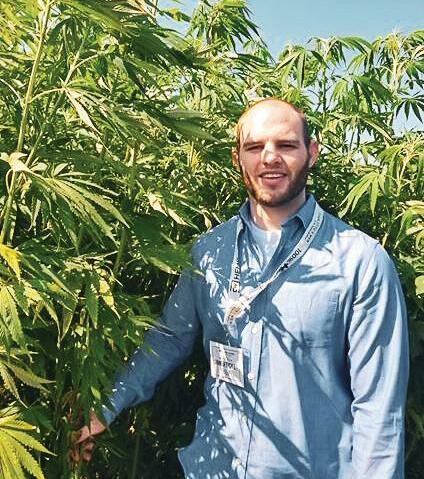
firm’s leadership about providing professional services to the cannabis industry and, to my surprise, was given permission to join various cannabis industry associations, attend trainings, and participate in industry events as the firm explored how to offer services to the controversial, complex, and fast-growing industry
The fact is that cannabis businesses then and now are in desperate need of accounting, audit, and tax services, and general business advice Who better for the job than an accountant/auditor with firsthand experience in the industry? So, shortly thereafter, I helped Mueller pick up its first vertically integrated cannabis manufacturer and retailer client in northern Nevada From there, I continued to network with other accountants and attorneys in the industry and leveraged my expanding experience and cannabis knowledge to help Mueller’s cannabis niche practice rapidly expand
Since starting the cannabis niche offering at Mueller, I have moved from audit to the accounting services department where I now provide cannabis businesses with ongoing accounting and tax support Considering that each state regulates medical and adult-use cannabis differently, and often regulations are revised several times, cannabis clients are working in an ever-changing environment And, as we see more states legalizing and regulating cannabis production and use in myriad forms, we anticipate alterations to federal enforcement will eventually result in changes to how cannabis businesses are taxed and access banking and financial services The current state of the cannabis industry already requires a constant need for our guidance and expertise what’s to come as it matures?
I never imagined being a medical cannabis patient as an accounting and finance student would lead me to be a senior associate leading a new, often controversial, cannabis niche practice at a midsized CPA firm It was my passion, persistence, and willingness to go beyond my comfort zone, both personally and professionally, that has allowed me this opportunity Now, I can even help you find opportunities in the cannabis industry as the chair of the Illinois CPA Society’s Cannabis Industry Member Forum
Existing cannabis businesses will continue to require increased planning and ongoing support from accountants and auditors And as Illinois now moves towards adult recreational-use legalization, and cannabis use becomes more prevalent in society overall, there will be more opportunities for accounting and finance professionals like us to grow our own opportunities in a very specialized industry If you would like to learn more about serving this industry, please join me at an upcoming Cannabis Industry Member Forum meeting The time to get involved in the cannabis industry was yesterday
50 INSIGHT | www icpas org/insight
Accounting and finance professionals must wrestle with the opportunities of a growing national cannabis industry if they want to come out on top.

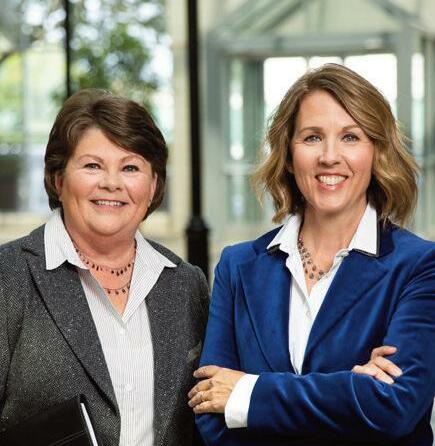


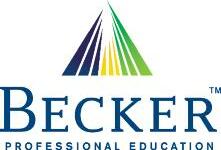





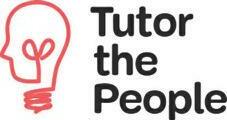





www icpas org/insight | SPRING 2019 51 CLASSIFIEDS
OR SELL
ILLINOIS ACCOUNTING OR TAX PRACTICE
PRACTICES FOR SALE: Gross revenues shown Springfield Area CPA $426K | E Central IL CPA $250K Chicago Tax $73 5K | Rockford Area CPA $390K St C air Co Tax & Acctng $550K
pr actice det ails call 1 800 397 0249 Or, visit us at www APS net to inquire about available oppor tunities and register for free email updates THINKING OF SELLING YOUR PRACTICE?
Practice Sales is the leading marketer of accounting and tax pract ces in Nor th America We have a large pool of buyers, both individuals and firms, looking for practices now We also have the experience to help you find the right fit for your firm, negotiate the best price and terms and get the deal done To learn about our risk-free and confidential ser vices, call Trent Holmes at 1 800 397 0249 or email Trent@APS net
OF YOUR CLIENT’S BUSINESS OR PRACTICE
andall & Br ackett, Ltd 630 344 2355 | rober t@cr andall-br ackett com | www crandall-brackett com Our on y ser vice s per formed on your behalf in a mutua engagement setting From bas c research to a fu l valuat on we tailor our ser vices to your needs We author, teach and par t c pate on pol cy setting committees and boards within the valuat on profession Selling your accounting fi rm is complex. Let us make it simple. Cont act Us O ce 866.260.2793 accountingbizbrokers.com
BUY
AN
ILLINOIS
For
Accounting
VALUATION
Cr
ILLINOIS CPA SOCIET Y MEMBER DISCOUNT PROGRAM U nlock the savings on the products and ser vices you use ever y day. For more information visit www.icpas.org/memberdiscount A benefit of your I linois CPA Society membership Rev 12 4 18
K athy Brents Christy Hud son
Monica N. Harrison

Controller, Chicago Sun-Times
By Eric Scott
Monica N Harrison, CPA wants you to know she is a non-traditional accountant In fact, she never could have imagined as a 17-year-old college student struggling to declare a major that one day she would oversee accounting and finance at one of the largest newspapers in the country Fastforward 20 years to a special day last year when she became controller at the Chicago Sun-Times after traveling down a very untraditional, yet rewarding, career path and you can see why her story is inspiring even to her own mother, who followed in her academic footsteps and earned an accounting degree
Q: Can you tell us a little about how you got to where you are?
Well, I am a first-generation college graduate When I first started school, I thought I wanted to be a dermatologist; I changed my mind, declared a major in Spanish, and then later switched to communications sciences After graduating from the University of Connecticut with a bachelor’s in communications sciences, I got my first job as a directory assistance operator for AT&T I worked there for a couple of years before realizing it wasn’t what I wanted to do I consider myself a nontraditional accountant because it wasn’t until later in life that I started working in the field and realized I was good at it
After I passed a civil service exam, I went to work for the City of New Haven, Conn as a payroll clerk Four years later, I was promoted to a position in the accounting department monitoring community development block grants (CDBG) and state grants I visited not-for-profit organizations that were federal and state grant recipients, reviewed their audits, and monitored their expenditures to ensure they were in compliance with the grant requirements This was my first time working in the accounting field, and I had a supervisor who mentored me and showed me everything I needed for my job It was through my jobs at the City of New Haven that I ultimately was inspired to go on to earn an MBA in finance at the University of New Haven and a master’s in accounting at the University of Hartford
While pursuing my master’s in accounting, I was nominated by the University of Hartford’s Barney School of Business to participate in a one-year fellowship program at the Government Accounting Standards Board (GASB) This fellowship was a wonderful experience because it allowed me to view and understand accounting from a theoretical perspective In 2016, I decided to move to Chicago to take a job with Ernst & Young in its Financial Accounting Advisory Services practice where I mainly helped clients with implementing the new revenue recognition standard I also became a member of the Illinois CPA Society Last year, I saw the Chicago SunTimes was looking for a controller I applied, and I was hired!
Q: Why was becoming a member of the Illinois CPA Society important to you?
I was a member of the Connecticut Society of CPAs before, and I think being a state CPA society member is just a great way to meet other professionals who are in the same industry as you I’m also passionate about making a difference in the accounting and finance profession I joined the Illinois CPA Society’s Women’s Connection Committee to contribute to making a difference for other women professionals, and the Society’s commitment to diversity is truly in line with my values, particularly the effort to reach out to minority students I am also on the board of the National Association of Black Accountants (NABA), so I bring information that I learn at the Society back to the NABA board to help us in our efforts to educate students and help minorities get into the profession
Q: Working for a major metropolitan newspaper isn’t exactly traditional either What’s the best part about it?
Number one is the fact that I am responsible for the finances of this organization I feel that what I do for the Chicago Sun-Times helps us maintain an important second voice in the city
Second, we have many celebrities and political officials come into the building for interviews and I think that’s very exciting Of course, the chatter in the newsroom also gets very exciting when we ’ re breaking stories that no one else is
Q: What advice do you have for others hoping to find your success?
Be open, be flexible, be patient, and be present when you are in the job you currently have you never know where it will lead Passing the CPA exam was one of my greatest victories I didn’t pass the exams the first time that I sat for them, which was very discouraging and frustrating, but I kept trying and, even though I didn’t have the traditional background, I eventually passed If I can do it, anyone can do it!
I N S I G H T S F R O M T H E P R O F E S S I O N ’ S I N F L U E N C E R S
52 INSIGHT | www icpas org/insight
Stay Smart
Conferences
May 1 Government Conference - Rosemont (In-person & Simulcast)
May 2 Government Conference (Springfield)
May 14 Estate & Gift Tax Conference (In-person & Simulcast)
May 15 Technology Solutions for Small Firms Conference (Morning and Afternoon Options Available)
May 21 Employee Benefits Conference (In-person & Simulcast)

June 5 Not-for-Profit Advanced Accounting & Uniform Guidance Conference (In-person & Simulcast | Morning Only Option)
June 6 Taxation on Real Estate Conference (In-person & Simulcast)
Courses
April 15 Essential Leadership Skills for Front Line Managers and Supervisors
May 8-9 Staff Training: Beginning In-Charge
May 17 Leases: Mastering the New FASB Requirements (In-person & Simulcast)
May 20 The Complete Guide to Section 199A’s 20% Pass-Through Deduction After IRS Guidance (In-person & Simulcast)
May 20 The Top Five Tax Issues in Dealing with LLCs and Partnerships (In-person & Simulcast)
May 21 Four Tiers of Loss Limitations: A Guide to the New Rules for Pass-Through Entities (In-person & Simulcast)
May 21 Taking Advantage of Installment Sales and Like-Kind Exchanges (In-person & Simulcast)

May 22 Comprehensive Guide to Tax Depreciation, Expensing and Property Transactions (In-person & Simulcast)
May 22 MS Excel: Database and Pivot Tables Made Easy
May 29 Project Management Skills for Non-Project Managers
May 29-30 Staff Training: Supervisory
May 30 Gift Tax Return Bootcamp on Steroids (In-person & Simulcast)
June 3 Audits of 401K Plans (In-person & Simulcast)
For a full listing of all upcoming education programs visit www.icpas.org/education
Special Events
May 10 Women’s Leadership Forum
May 20 Women's Mentoring Circles Open House
June 7 Young Professionals Leadership Conference
June 27 Women’s Committee Event: Cooking Class
August 21 Young Professionals: Lagunitas Brewery Tour
Aug. 28-29 ICPAS Summit19
June 3 Annual Update: Top Governmental and NFP Accounting and Auditing Issues Facing CPAs

June 4 Accounting & Reporting for NFP Organizations
June 11 Effective Presentation Skills: Delivering Presentations With Power, Persuasion and Impact
June 24 Ethics and Professional Conduct: Updates and Practical Applications (In-person & Simulcast)
June 24 Most Common Financial Statement and Asset Fraud Schemes: How to Detect and Prevent (In-person & Simulcast)
June 25 Qualified Business Income and More – Small Business Impacts of TCJA (In-person & Simulcast)
June 26 Managing the IRS Collection & Examination Process (Full Day)
June 26 Managing the IRS Collection Process (morning)
June 26 Managing the IRS Examination Process (afternoon)
July 10 Construction Contractors: Accounting, Auditing and Tax
July 11
July 15
Annual Update for Accountants and Auditors
Integrating Audit Data Analytics into the Audit Process
July 16 Hottest Tax Topics for 2019
July 17
July 17
Effective Business Writing Skills
Multistate Income Tax (In-person & Simulcast)
Get today’s must-have skills!
FINANCIAL Management



In accounting and finance, as in most of life, one strives to achieve balance Balance between effectiveness and efficiency; quality and quantity; the personal and the professional At Accounting Principals and Parker + Lynch, we strive for a dynamic balance in our operations in order to provide your organization with custom staffing solutions. We combine the robust resources of a national network with the local focus of a boutique firm: the best of both worlds From temporary talent to executive search, and everything in between, let our team provide yours with the balance it needs Contact one of our four Chicagoland locations today.



Chicago 312.583.9264 I Deerfield 847 607 0550 I Oakbrook Terrace 630 792.1660 I Schaumburg 847 3 97 9700 accountingprincipals.compar ke rlynch.com












 BOARD CHAIR GEOFFREY HARLOW, CPA, MST, MBA, PARTNER, WIPFLI LLP
BOARD CHAIR GEOFFREY HARLOW, CPA, MST, MBA, PARTNER, WIPFLI LLP










 Abisola Oladigbo
Abisola Oladigbo













































 thern Illinois Univer sity
Financial Ser vices
Owen T. Mattingly Indiana Univer sity Bloomington EY - People Advisor y Ser vices
Patrick Doyle McMahon Univer sity of Notre Dame Ernst & Young
Abigail S. Moynihan
Tr uman S tate Univer sity
Garrett Joseph Stein Miami Univer sity -Oxford Ander sen Tax
thern Illinois Univer sity
Financial Ser vices
Owen T. Mattingly Indiana Univer sity Bloomington EY - People Advisor y Ser vices
Patrick Doyle McMahon Univer sity of Notre Dame Ernst & Young
Abigail S. Moynihan
Tr uman S tate Univer sity
Garrett Joseph Stein Miami Univer sity -Oxford Ander sen Tax
























